100-Word Faith Stories: (Very) short essays about unexpectedly experiencing God in the world today

God is in all things. But we don’t always expect to feel God’s presence in a particular moment or place. We asked readers to share these stories of surprising moments of faith and grace in no more than 100 words. These (very) short essays about unexpectedly experiencing God in the world today include feelings of joy, sadness, laughter, anger and anything in between. They demonstrate the many ways in which God is with us, if only we would take the time to notice.
Two parents and four boys make a small house feel like a sardine tin packed with firecrackers. I had my eye on a larger fixer-upper nearby. But despite its apparent practicality and my eagerness, my husband wasn’t enthused. I suggested a quick attempt at discernment: Pray one Hail Mary while imagining we had settled on each choice, buy or stay.
We both felt God’s presence. The “Stay” prayer brought unwelcome but undeniable inner peace. “Buy” brought anxiety rather than excitement.
I could only respond, “Thy will be done.” Our house is cramped and noisy, but we’ll stay for now. Jessica Carney Ardmore, Pa.
My sons and I were enjoying the wave pool at our local amusement park on a beautiful sunny day. There was the usual crowd of people—of different ages, from different neighborhoods and cultures—all enjoying the pool. I closed my eyes and was suddenly aware of the joyous cacophony. All the voices, screams and laughter of my siblings, my fellow children of God. I was awestruck, and with my eyes still shut, I smiled broadly, and I thanked God for that sudden grace of connection and awareness. Matthew Whelehan Rochester, N.Y.
My husband is a stroke survivor; I’m his caregiver. Ron has balance issues, garbled speech and swallowing difficulties. Once the primary breadwinner, Ron’s now on SSDI. I struggle to bring in money while handling the numerous responsibilities of caring for my husband and household.
Earlier today I read the abandonment prayer of the newly canonized St. Charles de Foucauld: “Father, I abandon myself into your hands; do with me what you will. I am ready for all, I accept all. Let only your will be done in me, and in all your creatures.”
I am now at peace. Jerilyn Burgess North Olmsted, Ohio
At my first holy Communion, when I was 7 in 1958, I came up to the altar and was so small I had to stand rather than kneel at the rail. The priest approached and put the host on my tongue. I felt drawn out of myself, forgetting where I was, feeling a sense of presence. It was like being a mini Samuel, and I said to the Lord, “Speak, for your servant is listening . ” My love for the Eucharist continues to this day. William Eagan, S.J. Weston, Mass.
I invited my all-white classmates to Mass at my Black Catholic parish. During Mass, my friend nudged me, “Lee, we’re the only white people here.” I responded, “Frank, how do you think…” but before I could finish my statement, Frank added, “Lee, I never thought about you that way.” The experience helped him to see my struggles as the only Black kid in our classes. We had just had a class that taught we were made in the image and likeness of God. We saw that in one another more clearly now. Lee Baker New Orleans, La.
As I walked a labyrinth, I couldn’t shake the image of playing hide and seek with God. Shrubs around the path made me alternately feel hidden and then exposed. I know God is always there waiting for me, but I often “hide.” I fear I haven’t done enough, or I’m not good enough to earn God’s love. But those doubts come from me, not God. Although I may think I’m hiding, God sees and loves me. When I embrace God’s unconditional love, I will grow into the person he created me to be. Cathy Cunningham Framingham, Mass.
Deep in grief as I grappled with my husband’s determination to divorce, God felt absent, my faith rocked. My friend, Sister Noreen, told me to read the Bible. I mocked her. Unfazed, she insisted: “Open it at random. What have you got to lose?” On March 19, as I opened a newly purchased Bible, I cried: “God where are you?!” My eyes fell upon Jer 29:11. “For I know the plans....” I can still feel the jolt that coursed through my body at that moment—in shock and joy—the first of many such moments since then. Mary Margaret Cannon Washington, D.C.


Most popular

Your source for jobs, books, retreats, and much more.
The latest from america
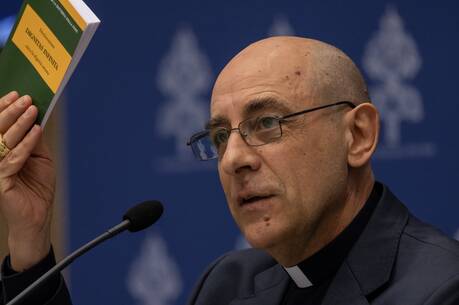
The Experience of Faith Essay
The major concern in religion is that the relationship between faith and spirituality is a frequently debated subject among all Christians. Many people today have an intellectual belief in God but lack a two-way contact relationship with Him. The “faith experience” with God allows individuals to personally experience God’s faithfulness, compassion, and personal existence. Undoubtedly, faith is hard to achieve, as it is the belief that something is real or genuine despite the lack of credible proof, and it often ignores established facts that show the thing is not accurate or true. For these reasons, there is a rising problem regarding people’s faith and lack of it.
Indifferentism has been increasing in the 21 st century, with the younger people ignoring religion and taking a more neutral stance towards religion. The study found that traditional Protestant churches and other branches of Christianity are declining, posing a significant threat to religion’s strong presence in person and societal life (Schneiders). Such a trend may be explained by the fact that younger generations of Americans have had less religious experiences as children than previous generations.
Faith is not the same as hope or optimism. And religious faith is not to be mistaken with confidence based on evidence or trust gained with time from experience since there are no gathered facts to validate confidence and no accumulated trust over time in religious faith. There may be speculation that leads to faith, but there are no details about the nature of any gods. In all cases outside of religion, faith is the product of getting at least some proof. When faith is involved, religious belief is completely devoid of facts. Earned confidence acquired over time through experience, on the other hand, is nothing like faith. Trust is confidence devoid of knowledge over time, taking us full circle back to faith, trusting in the reality or truth of something without adequate proof.
Among the religious society, several concepts for the relationship between religion and spirituality exist, as explained by Schneiders (2003). In the first model, people perceive religion and faith as two distinct notions. This is the viewpoint of young people who admire others’ religious commitments but are not interested in engaging in religion themselves. The second theory states that some people see faith and spirituality as contrasting truths that are inversely related to one another (Schneiders 164). The less religious one is, the more spiritual one is, and vice versa. Ultimately, some people see faith and religion as two facets of a single enterprise that, like body and spirit, are often at odds with one another but are indispensable for one another, together, create a single truth (Schneiders 165). Thus faith and religion have various perceptions and may be viewed from different dimensions.
Concluding, I personally agree with Schneiders’ attitude on faith and spirituality across all domains. Faith is something that is developed within individuals as a consequence of their religious education and personal feelings. The fact of the declining religious population explains the lack of faith and deep conscious involvement in the religion. The author argues about the concept of spirituality, giving substantial evidence to his statements, which evokes a feeling of trust and persuasion. He concludes that the confrontation between religion and spirituality is principally influenced by the shortcomings of the latter, which invalidate the former, as religious tradition is reduced to and equated with its institutionalization, which I entirely agree with.
Works Cited
Schneiders, Sandra Marie. “Religion vs. Spirituality: A Contemporary Conundrum.” Spiritus: A Journal of Christian Spirituality , vol. 3, no. 2, 2003, pp. 163–185, 10.1353/scs.2003.0040.
- Chicago (A-D)
- Chicago (N-B)
IvyPanda. (2022, October 10). The Experience of Faith. https://ivypanda.com/essays/the-experience-of-faith/
"The Experience of Faith." IvyPanda , 10 Oct. 2022, ivypanda.com/essays/the-experience-of-faith/.
IvyPanda . (2022) 'The Experience of Faith'. 10 October.
IvyPanda . 2022. "The Experience of Faith." October 10, 2022. https://ivypanda.com/essays/the-experience-of-faith/.
1. IvyPanda . "The Experience of Faith." October 10, 2022. https://ivypanda.com/essays/the-experience-of-faith/.
Bibliography
IvyPanda . "The Experience of Faith." October 10, 2022. https://ivypanda.com/essays/the-experience-of-faith/.
- Schneiders Food Company History and Products
- Schneiders Food Company and Tyson Foods Inc.
- Schneiders Food’s Marketing Mix: Past Marketing Strategies and Prospects in the Future
- Does the East Asian “Miracle” Invalidate Dependency Theory
- Web of Institutionalization
- Impact of Financial Speculation on Commodity Markets
- Criminal Justice: Over Institutional Organization
- Four-Stroke Diesel Engine's Operation Parameters
- Buddha’s Speculation About Life After Death
- The Discussion on the Institute of Family
- The Jewish Context of Christianity
- Attitudes Toward Opponents in Gospels of Luke and John
- The Presentation of Gospel Accounts in Gibson’s “The Passion of the Christ”
- Jehovah’s Witnesses Organization’s Fundamental Principles
- Religious Groups and Corporates Relationship
My Personal Experience Of God Essay Example
My cup of gladness is most full when I am helping people become more aware of God’s presence in their lives to fulfil their calling. This might happen in the context of leading a traditional worship service, preaching a sermon, mentoring, teaching or facilitating a prayer group. But just as often, encountering God happens in the ordinary, everyday, mundane tasks and activities of life. Becoming aware of God’s presence in our lives is a lifelong exercise in learning to see.
From an early age, when I accepted Christ as Savior, I had a strong sense that my life would be about Jesus. I believe that was God’s first call (small c) on my life—to follow him. As I grew in my faith, there was a growing awareness within that God was Calling (capital C) me into much more. Throughout different seasons in life, I can recall several godly people who affirmed this in me.
At a young age I have felt irresistibly drawn to God. As a child, I was compelled to read my Bible and pray every day—and I did with little or no understanding why or how it should be done. My journey to this revelation was long and filled with great struggles. I recall having dreams from five years, they would speak to the cause of current issues within the family, events to come (all manifested) and a great part of my dreams were related to now known: spiritual warfare. Surprisingly, I was somehow able to understand their meanings and help other interpret their dreams. At times, I would speak things and they would come to past. Strong instincts to persons motives: discernment. As a result of these unexplainable abilities, I struggled with rejection and strong attacks both physically and spiritually from those operating under the Jezebel spirit from many including persons with the body of Christ. I remember wondering how God intended to use such a variety of seemingly strange and unrelated experiences to direct my path. When things got hard, I mean really hard, I felt disillusioned and disqualified. Little did I realize he was doing much more than leading me to a role or destination. God was (and still is) radically transforming and preparing me to be able to recognize and fulfill what he has called me to.
I recalled attending many services where I would be identified from the congregation and prophesied to in relation to my calling which stood as confirmation to dreams and visions received prior to these meetings. A pivotal point in my life was when I began to recognize that God’s purpose for me was so much more about my identity in Christ rather than what I was happening. Embracing this reality has brought incredible freedom. Don’t get me wrong, this continues to be a process—but one filled with much more joy and less frustration. Now that I am older, and hopefully a bit wiser, I can connect the dots and am often stunned by God’s wisdom, patience and redemptive power.
By the age of twenty-one years, I was convinced that I was called to ministry. It was a Thursday evening, sitting in the backyard conversing with God while admiring the birds flying around and the ants hustling with food to their nest. I recalled hearing the audible voice of God calling me. I looked around, no one was there, I heard it again, I began to denounce the spirit, which was my conclusion of such sound. Then, I heard the voice say, “I am your God, whom you are speaking with, fear not” Fear, immediately disappeared and I felt an overwhelming sense of peace and joy at the same time. He added, “I have chosen you; you are anointed for great work in my kingdom.” I immediately wrote the words down and pondered on them, researching the possible meaning through the scriptures. It did not happen overnight. I began studying the lives of Joseph, David and Moses to name a few as to how they served.
Related Samples
- Does It Matter Who You Love
- Narrative Essay Sample:My Turning Point
- How fair are jobs to the disabled?
- Narrative Essay Sample: Sport in My Life
- How to Focus Your Job Search on the Internet Essay Example
- Beauty Pageants And Self Esteem Essay Example
- Narrative Essay about Stoicism and Confucianism
- Perfect Paris Family Fun! (Essay Sample)
- Personal Narrative Essay: My First Day of Preschool
- The Concepts of Cosmetics (A Review of Literature Revision) Essay Example
Didn't find the perfect sample?

You can order a custom paper by our expert writers
Photo Essay: What My Faith Means to Me
BU students, faculty, and staff reflect on the intimate role religion, prayer, and meditation play in their daily life
Cydney scott, bu today staff.
Boston University began as a Methodist seminary, the Newbury Biblical Institute, in Newbury, Vt., in 1839. And since its beginnings in Boston in 1869 as Boston University, it has been open to people of all sexes and all religions, many who carve out time from their daily studies and work to find moments to pray, meditate, and reflect.
BU photographer Cydney Scott has long wanted to capture the many ways members of the BU community express their faith.
“One of the great things about being a photographer is that I have the privilege of stepping into aspects of life that are unfamiliar to me,” Scott says. “Religious faith is one of them. Religion and faith give people solace, guidance, and a sense of community, among other things.”
Last fall BU Today invited members of the BU community to reach out to Scott directly, and within days, she had heard from people who identified as Christian, Jewish, Buddhist, Hindu, Mormon, and more. She photographed almost 20 people in their homes, at work, and out of doors as they practiced their respective faith traditions. The COVID pandemic made it impossible to photograph most of them in their churches, temples, mosques, and other places of worship, so instead, Scott sought to capture each one in ways that reflect how they pray, worship, and integrate their faith into their daily lives. Each participant also wrote a short essay describing what their faith means to them.
The resulting photos are deeply personal and intimate, speaking to the breadth and diversity of the BU community and the myriad ways people observe and celebrate faith in their lives.
Emily Mantz (Sargent’21,’23), Christian

“There are many ways that I practice my faith on a daily basis. I try not to keep my faith in a box, and instead try to integrate it into everything I do. I was raised by not one but two pastors, so growing up saying grace before eating has always been a part of my day. During my undergraduate years I was heavily involved with BU’s Inner Strength Gospel Choir. While I’m no longer quite so involved, I still find singing and music to be one of the best ways for me to connect with the Lord. I attend church every Sunday and volunteer at the nursery there as well. Finally, I pray and read my Bible every day, twice a day. This allows me to dig a bit deeper into the teachings of God as well as talk to Him about my day, things I’m struggling with and things (or people) who need to be prayed for.
“To me, my faith is my lifeline. I have probably gone to church every Sunday since the day I was born, and while church itself is a huge part of my life, my personal relationship with Jesus is really what has gotten me through these past five years of college. Whenever I’m struggling, I know I can talk to Him and He will always be there with me. Not to mention the friends He has placed in my life to help me along the way. As Christians, we are really called to live out our faith so that other people can get to know Jesus through us. I try to exude that by upholding values of kindness, forgiveness, and patience in all aspects of my life, no matter how hard it may be.”
Aimee Mein (COM’22), Buddhist

“My faith is the lens through which I see the world. My perspective on life completely shifted after studying Buddhism and incorporating Buddhist practices into my everyday experiences. Every moment has become an opportunity for mindfulness, things that used to cause me anxiety are calmed by a newfound belief system. Even my struggles with mental health have improved. Most importantly, my faith means a sense of peace with the universe and compassion for all beings.”
Binyomin Abrams , College of Arts & Sciences research associate professor of chemistry, Jewish/Hasidic/Chabad Lubavitch
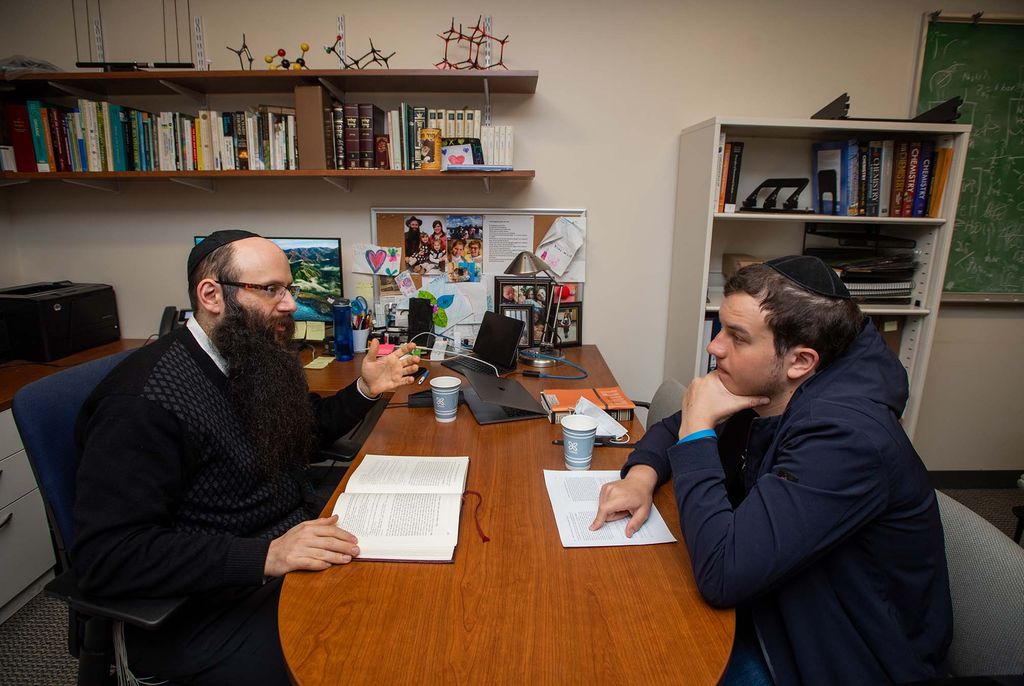
“I’m Jewish, specifically a Lubavitcher (Chabad) chossid. Jewish faith is synonymous with Jewish practice—doing acts of goodness and kindness (mitzvahs) and working towards refining the world around us. One of the most special and meaningful things that we do is to learn Torah, which brings meaning to my faith through intellectual, spiritual, and practical guidance on how to improve ourselves and transform the world for the better.”
Martha Schick (STH’22), United Church of Christ
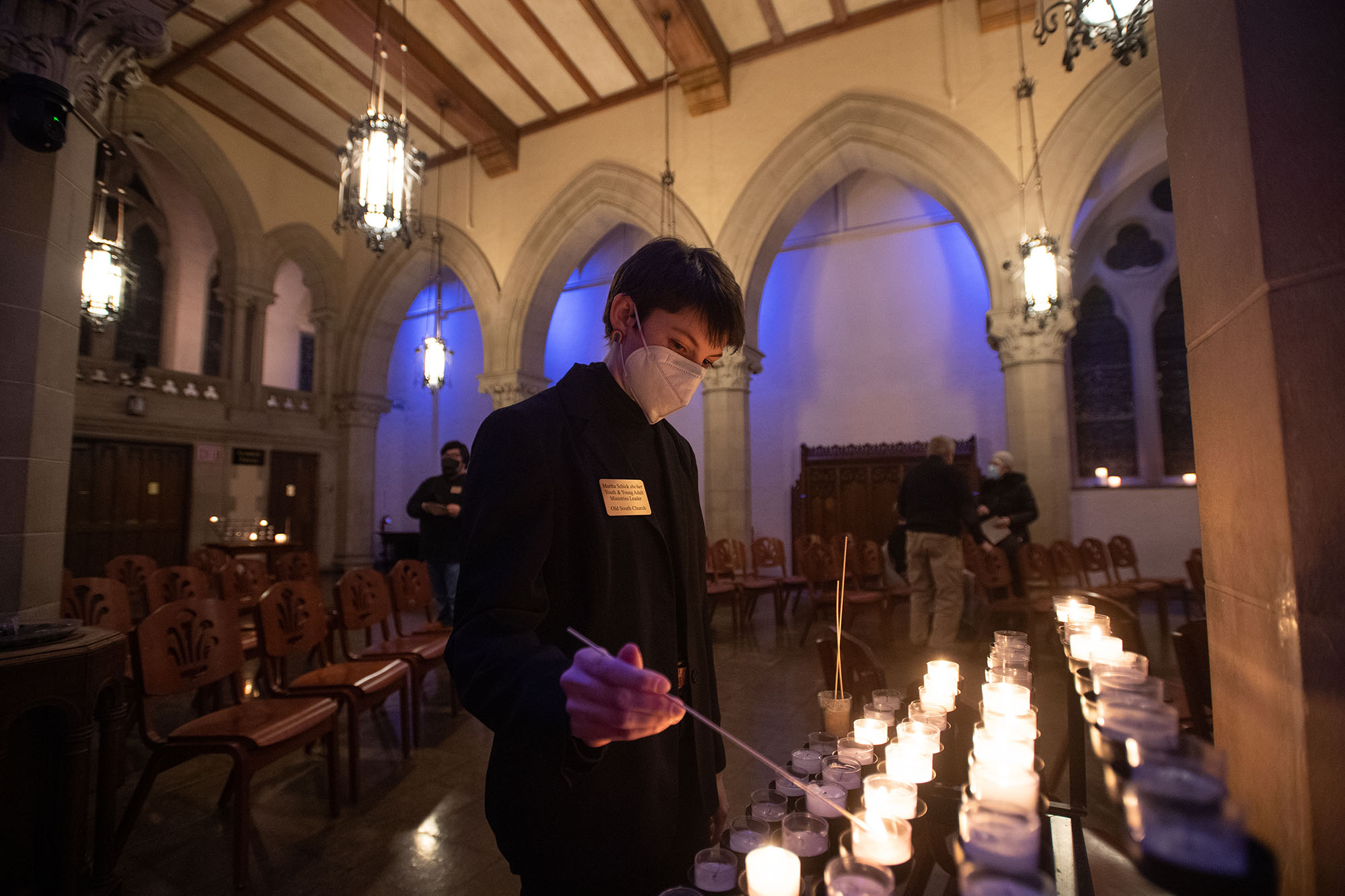
“My progressive Christian faith is where I find hope, solace, rest, and motivation. In our world, which is both broken and beautiful, the story of Jesus Christ and the stories of the ancestors of our faith are where I can look to make sense of things. I often come away with more questions than answers, but my church community welcomes my wrestling and makes my faith stronger because of it. In studying to become a pastor, I am both empowered to bring my full self to ministry and humbled to remember that the Holy Spirit is working through me. As a queer woman pursuing ordination, I also know that my very presence in the leadership of a church is a symbol and example of God’s love and calling for all people.”
Muhammad Zaman , College of Engineering professor of biomedical engineering and of materials science and engineering and Howard Hughes Medical Institute Professor, Muslim
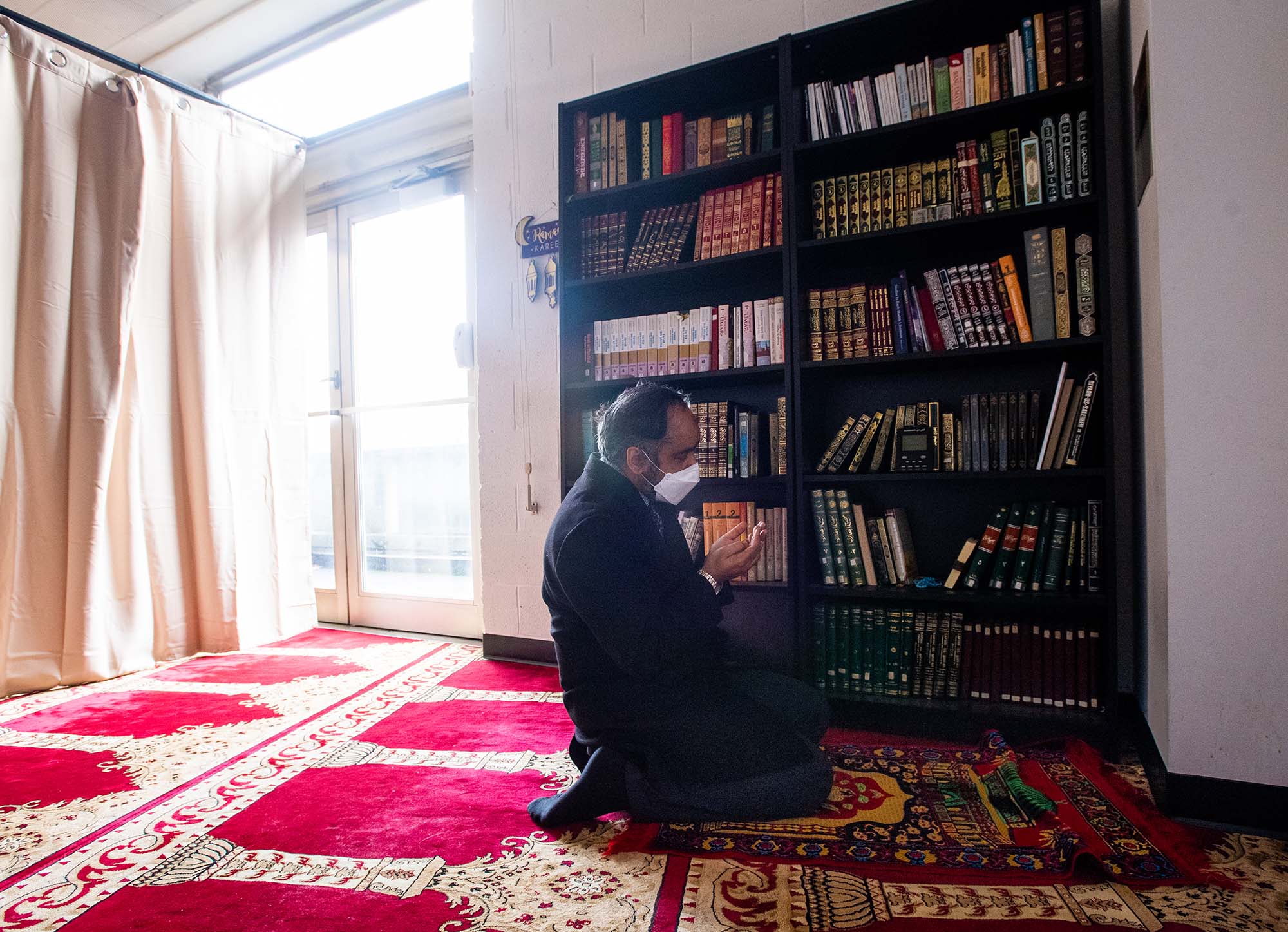
“I am a practicing Muslim and consider my faith as a driver for my work. In particular, the emphasis of Islam on humanity, social justice, welfare, and human dignity has a profound effect on my work to provide equitable access to healthcare among refugees, migrants, stateless persons, and the forcibly displaced all around the world.”
Chloe McLaughlin (STH’22), United Methodist Church
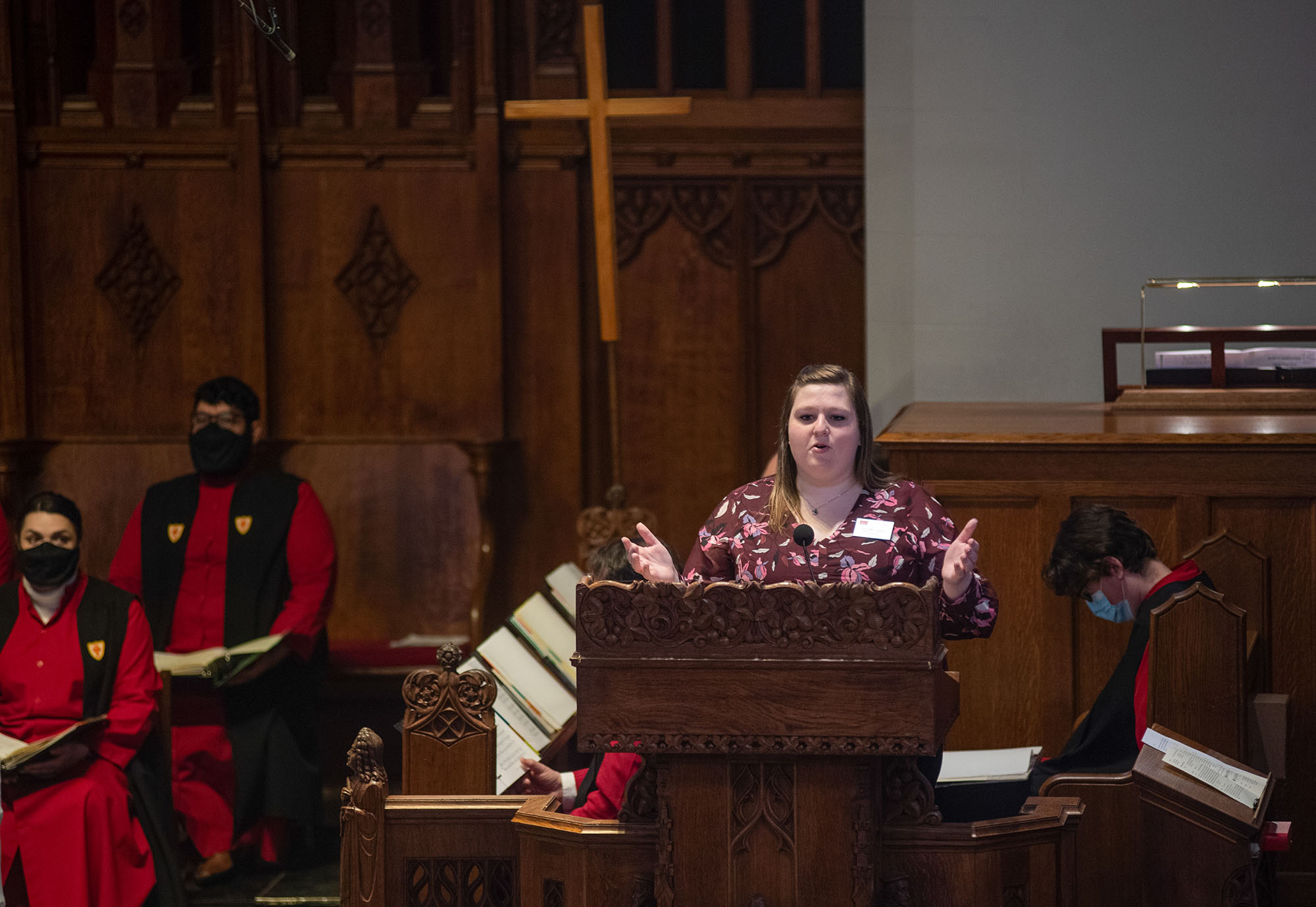
“Faith has always been a huge part of my life. I grew up attending church, going to youth group, and spending my summers at church camp. At the end of this semester, I will be lucky enough to have two degrees that focus on religion and this faith that is so integral to who I am. In the long run, I think I have always been drawn to faith, specifically Christian faith, because I believe it informs my sincere commitment to justice, equity, and mercy. Over the last three years, as I have worshiped at Marsh Chapel, I have seen kindred commitments in action. The chaplains and staff are genuine, courageous, and willing conversation partners on difficult topics in the church and the world. I have been mentored, encouraged, and challenged by the staff and community at Marsh, and I am so grateful.”
Mich’lene Davis (SSW’25), Christian/Pentecostal
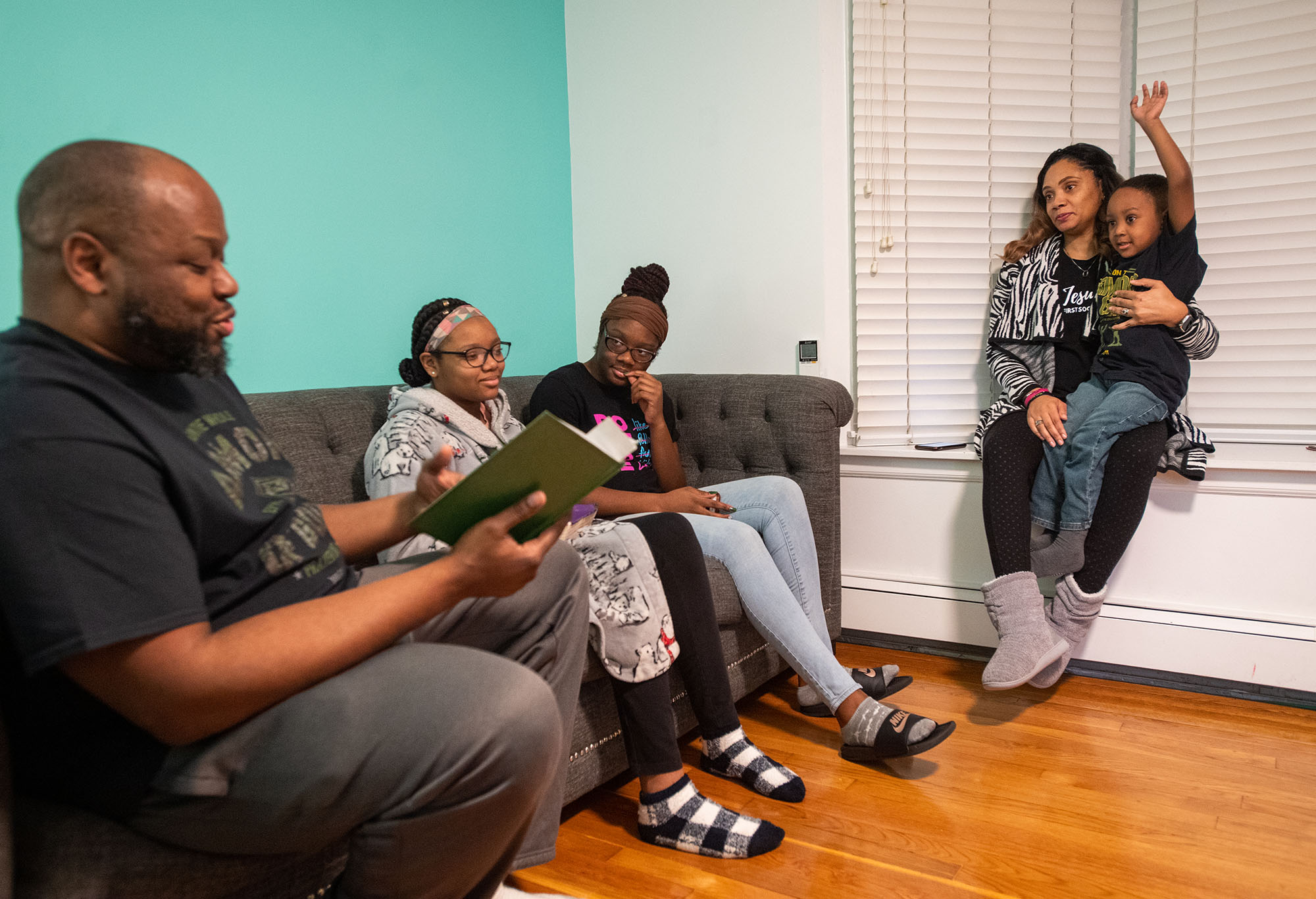
“‘Faith is the substance of things hoped for and the evidence of things not seen’ (Hebrews 11:1). The wind blows, no one can see it, but you feel it and know that it is there. We practice a blind faith every single day of our lives without consciously knowing that we are doing it. We have ‘faith’ that the chair we sit in will support our weight and not send us tumbling to the floor in an embarrassing manner. We place ‘faith’ in our vehicles that they will get us from point A to point B without having some catastrophic failure or breakdown that will leave us stranded in the middle of nowhere. As a Christian, my faith is my lifeline, like an umbilical cord to an unborn child. Everything I believe about God and His one and only son, Jesus Christ of Nazareth, is what feeds my mind, soul, and spirit. I have faith to believe that Jesus Christ died on the cross via crucifixion, but rose again three days later, and because of this I no longer will have to face an eternal death, but will instead have eternal life with Him in heaven. I have personally benefited from and have witnessed answered prayers that had no natural explanation for how they were answered. My daily life consists of me worshiping and praising Him through the music I listen to and sing. Reading and meditating on His Word (the Bible) helps me to remember to whom I belong and helps me to strive to be a better person each day.”
Caitlyn Wise (Sargent’23), Church of Jesus Christ of Latter-Day Saints
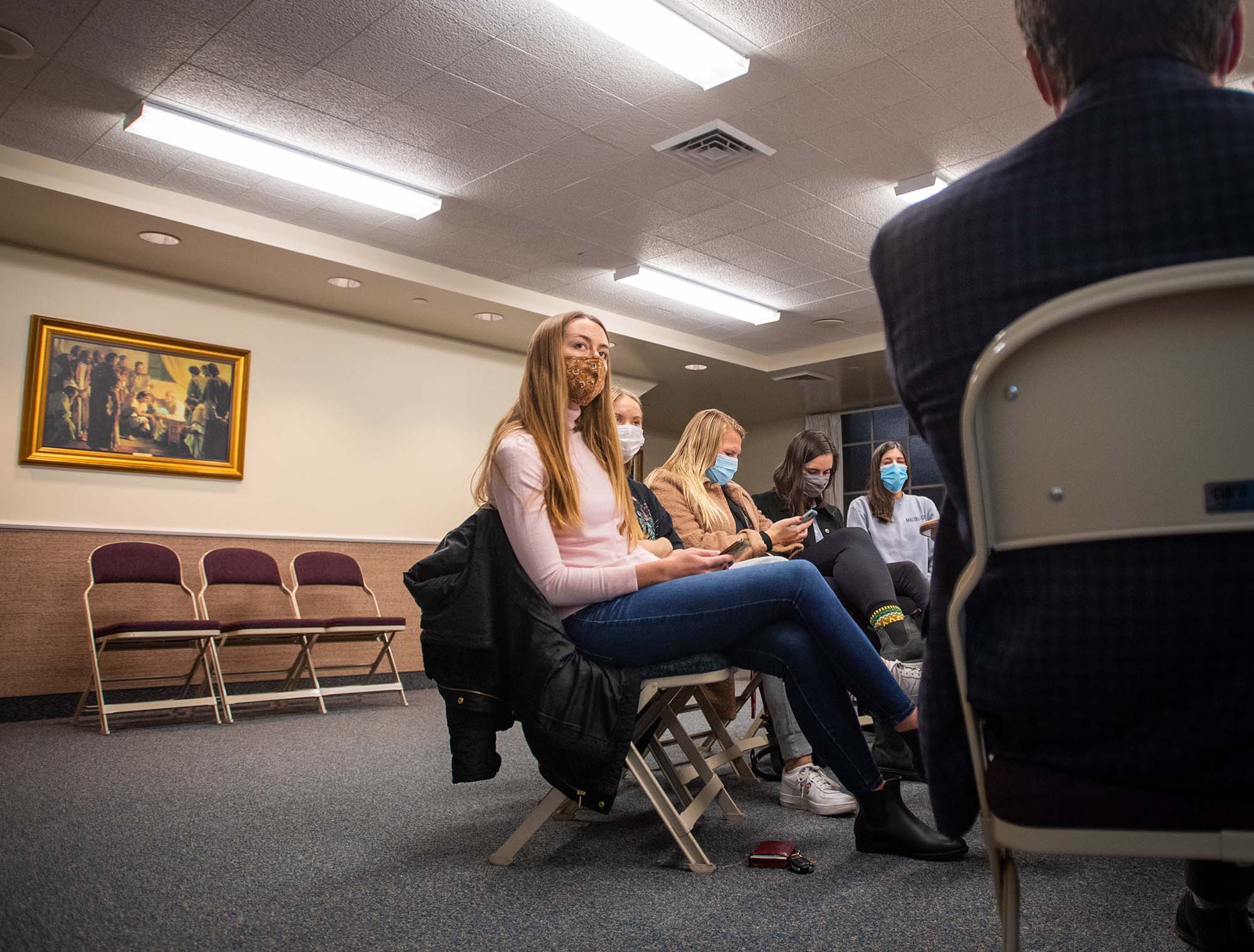
“Faith gives me the confidence to live courageously each day. Through prayer and scripture study, the knowledge and power I receive from my faith allows me to look for ways to serve and learn from those around me. Whether it is me praying for guidance in my studies or me applying principles of kindness and compassion in the BU community, my faith gives me a source of strength in my everyday life.”
Adit Mehta (CAS’22), Jainism

“I was brought up in a Jain household and always had it around me, but in college, separated from my parents, I’ve explored my faith and consciously made decisions to follow ahimsa (nonviolence), aparigraha (non-possessiveness), and anekantavada (multiplicity of viewpoints), the three As of Jainism. In college I’ve also been able to find a community among members of Jains in Voice and Action , the BU Jain club, and the Young Jains of America . My faith means making active choices to reduce harm to others and the environment. It’s less about praying and more about reflecting on my actions and choices during Samayik, 48 minutes of meditation. My faith makes it possible for me to understand myself and how I affect and can help others.”
Zowie Rico (CAS’23), Lunar Witchcraft
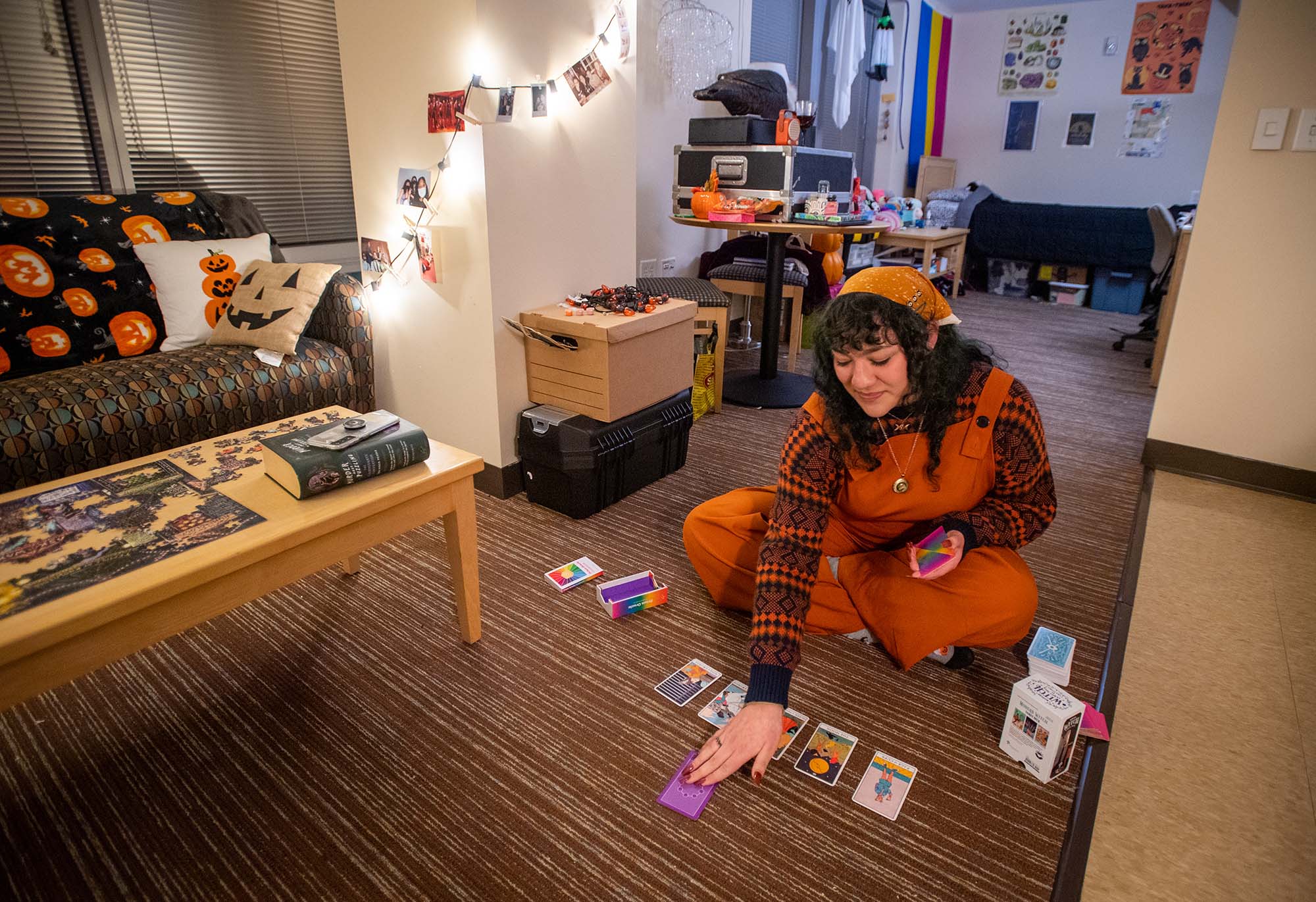
“My spirituality is something very new for me. I started my journey in July of 2020, during the latter half of quarantine. Before that, I wasn’t really a spiritual person. Now, however, I use my spirituality to guide me through many aspects of my life. It’s a way for me to connect with my inner self and actively work to become one with the energies around me. It’s also helped me with my anxiety, as it’s given me a lot of coping mechanisms to use throughout my life, like grounding and meditation.
“My spirituality is a part of many aspects of my daily life. It manifests itself in everything from making my smoothie in the mornings to doing affirmations while stirring my coffee to using my intuition for many of my decisions each day. I am so happy that I’ve been able to incorporate my practice into my daily life because it helps center me each day and provides comfort during hard times.”
Jewel Cash, BU Summer Term program manager, Christian
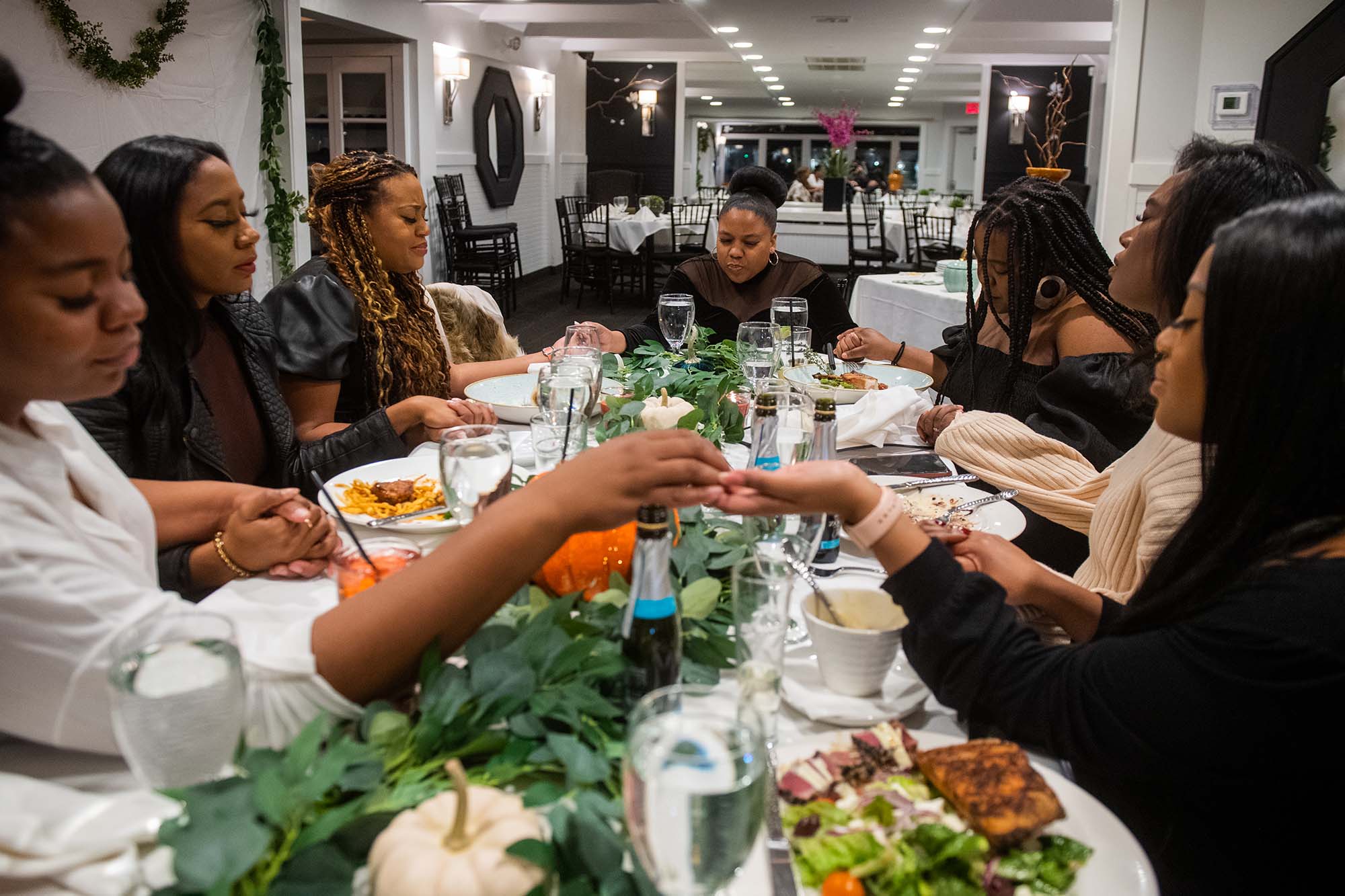
“I grew up in a Christian household, served within the church as a choir member, dance ministry leader, and director of Christian education over the course of my life. My faith has always been an important part of my life. As a child I remember my mother sending me to church by myself to ensure my relationship with God would grow during a season in which she was sick and could not go herself. During college it was important for me to go back to attend youth bible studies so I could understand more about the Bible. As a professional, I remember interviewing at BU, being asked, ‘What do you do to manage stress?’ and surprisingly responding without hesitation ‘Pray. In overwhelming times I may take a deep breath, evaluate the situation, and pray to recenter myself. So if you see me step away to the restroom for a longer time, I may be praying so I can come back ready to tackle the problem as my best self.’
“My religious faith means a lot to me. That there is purpose in my being, that I do not walk alone through life, that I have a community of believers who I can fellowship with, that I am to be a positive example to others of what my God calls me to be, and in short, that all that I have is all that I need to be my best self and live life fully and abundantly, for I am blessed and favored in a special way. It means I am not perfect, but as I pray, praise, and push, I am progressing. It means, as the Bible says, I have been given a spirit of power, love, and sound mind, and with these three things I can make a difference in the world and encourage others to do the same.”
Ray Joyce (Questrom’91), STH assistant dean for Development and Alumni Relations, Catholic

“My faith really means everything to me. It’s how I live through each day, the good and the bad. In the current political climate, I find it’s essential to keep centered. For example, when I hear people who are eligible, but refuse to get the COVID vaccine to protect themselves and others, a part of me wants to say: ‘Then let them die,’ but I know that’s wrong. As it happens, today’s reading in the Bible from 1 Corinthians 3:16 includes the words ‘…and the Spirit of God dwells in you.’ As my daily reflection from Terence Hegarty (editor of Living with Christ) states ‘…not only does the Spirit of God dwell in us , but in everyone …’ So I hold onto that and try to understand where someone might be coming from to reach such a conclusion as to refuse a potentially lifesaving vaccination. I act where I can to help others and our planet while also waiting with anticipation for better days ahead with a renewed sense of hope.”
Mary Choe (CAS’24), Baptist
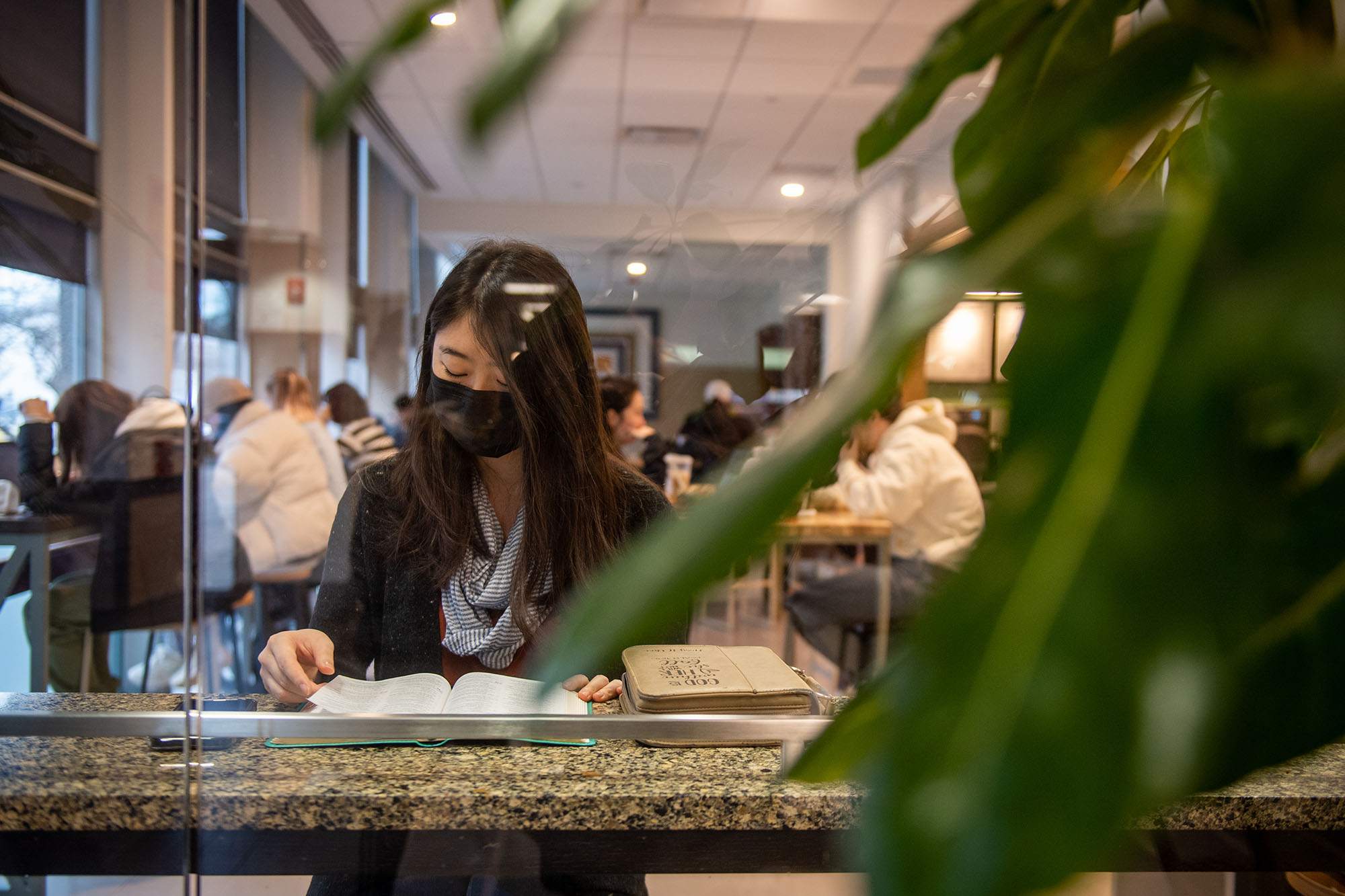
“Hebrews 11 states: ‘Now faith is the assurance of things hoped for, the conviction of things not seen.’ For me, faith is not some distant feeling, but a series of beliefs that lead to concrete actions. My beliefs are based on the words of life, light, and love I read in the Bible. Much like life itself, faith is hardly easy or linear. I have times of doubt, because admittedly, it’s difficult to go against the flow of campus life. And since God is invisible, I often get distracted by the instant gratification of the here and now. I’m realizing more and more, however, that even my faith is less about me than about the object of my faith—which is not a concept or an idea, but God embodied in flesh, Jesus Christ. My relationship with Jesus is what makes my faith dynamic, filled with joys and sorrows, highs and lows, times of peace and serenity, along with fears, failures, and more than a little drama. But I take comfort in knowing I’m not on this journey alone. I have a cloud of witnesses walking before me and with me and many more examples of faith who’ve already walked this pilgrim journey. Living by faith is not a loud, showy display, but an assured, hopeful way of being. My hope is that I, too, can finish the journey of faith well and experience victory in Jesus Christ!”
Swati Gupta (SDM’23), Hindu
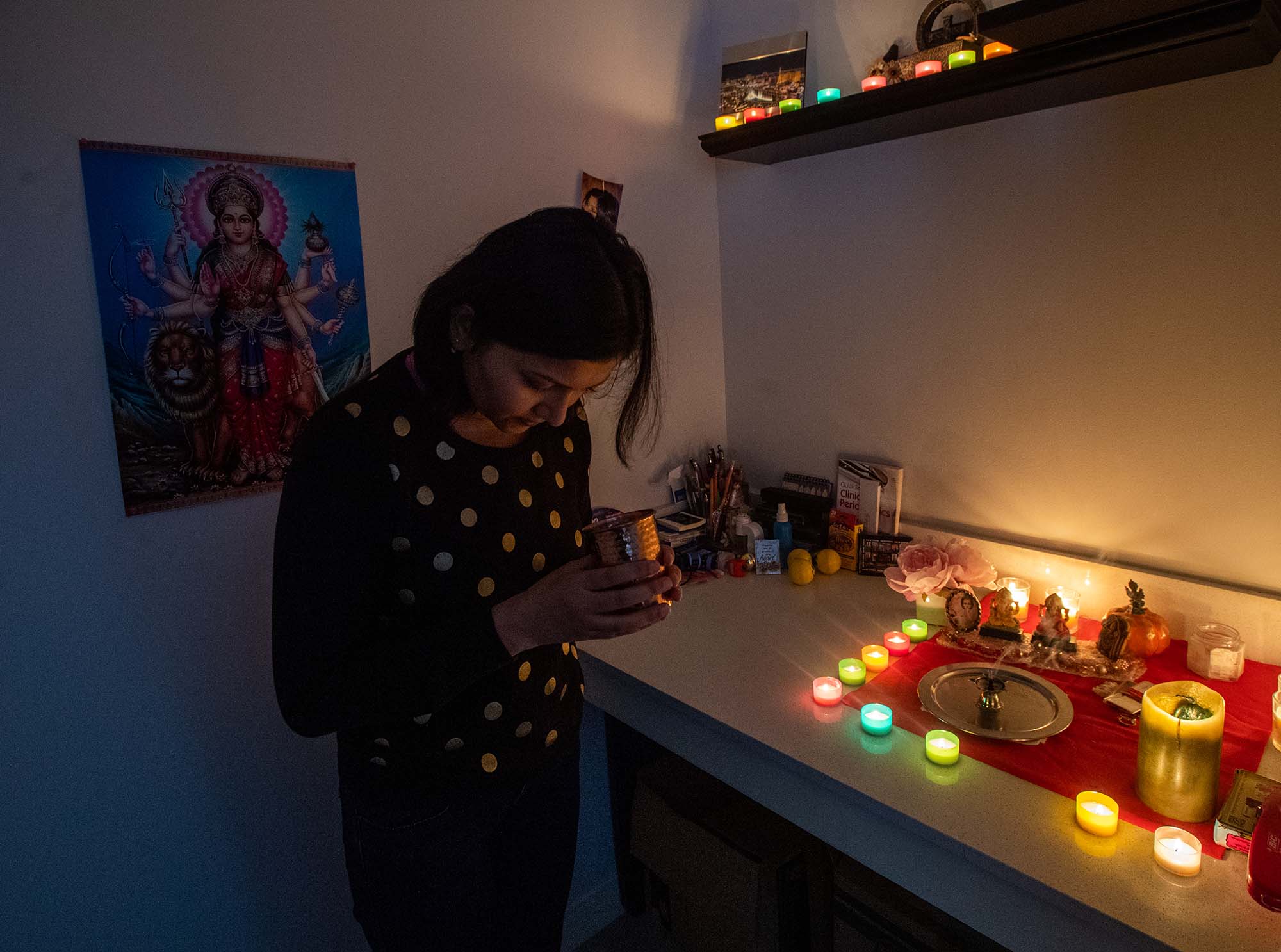
“The first letter of the word ‘faith’ is very important to me and that is what describes my belief. For me, ‘f’ stands for flaw. In our sacred book, Bhagwad Geeta , it has been suggested that being human also means being flawed. Lord Krishna says that humans will make mistakes because that is a part of their Karma. A person should not be merely judged by their act, but by the intent behind that act. For example, if a lie is said with an intent of harming someone, it is equivalent to 100 lies, but if that one lie saved an innocent person’s life, then that lie is equivalent to 100 truths. I am not a religious person who goes to the temple every week or worships every day, because religion to me is not an act of worship, but an act of becoming a better person. My faith teaches me to make mistakes, be judgmental, have emotions of anger, but at the same time learn from those mistakes and accept if any wrongdoing was done. Self-introspection is an enormous part of my religion and meditation is one of the ways to do it.”
Kristen Hydinger (STH’15), ordained minister and research fellow, Albert and Jessie Danielsen Institute, Baptist
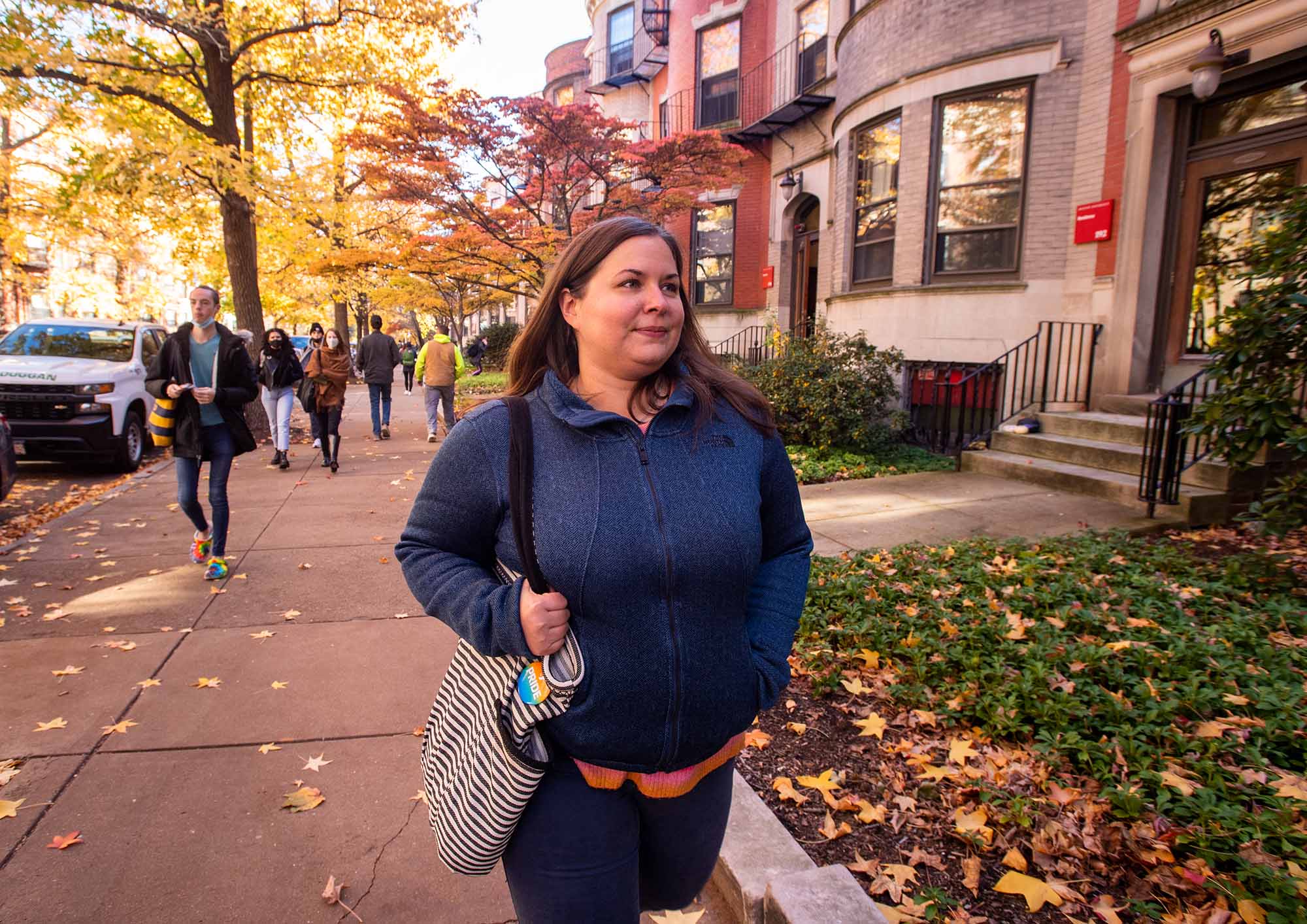
“The faith in which I was raised and eventually ordained taught me that every created thing reflects a Divine image back into the world, that the created world is ‘fearfully and wonderfully made.’ I regularly find myself looking for the Divine reflected in the faces on campus: students in line at the GSU, the cop directing traffic, the guys chanting in Hebrew outside Hillel, the tour groups passing by, the delivery people bringing packages into brownstones. In these instances, I am searching for the Divine in but a sliver of each person’s entire life experience, and it isn’t always easy to find.”
Kristian C. Kohler (STH’25), ordained minister, Evangelical Lutheran Church in America
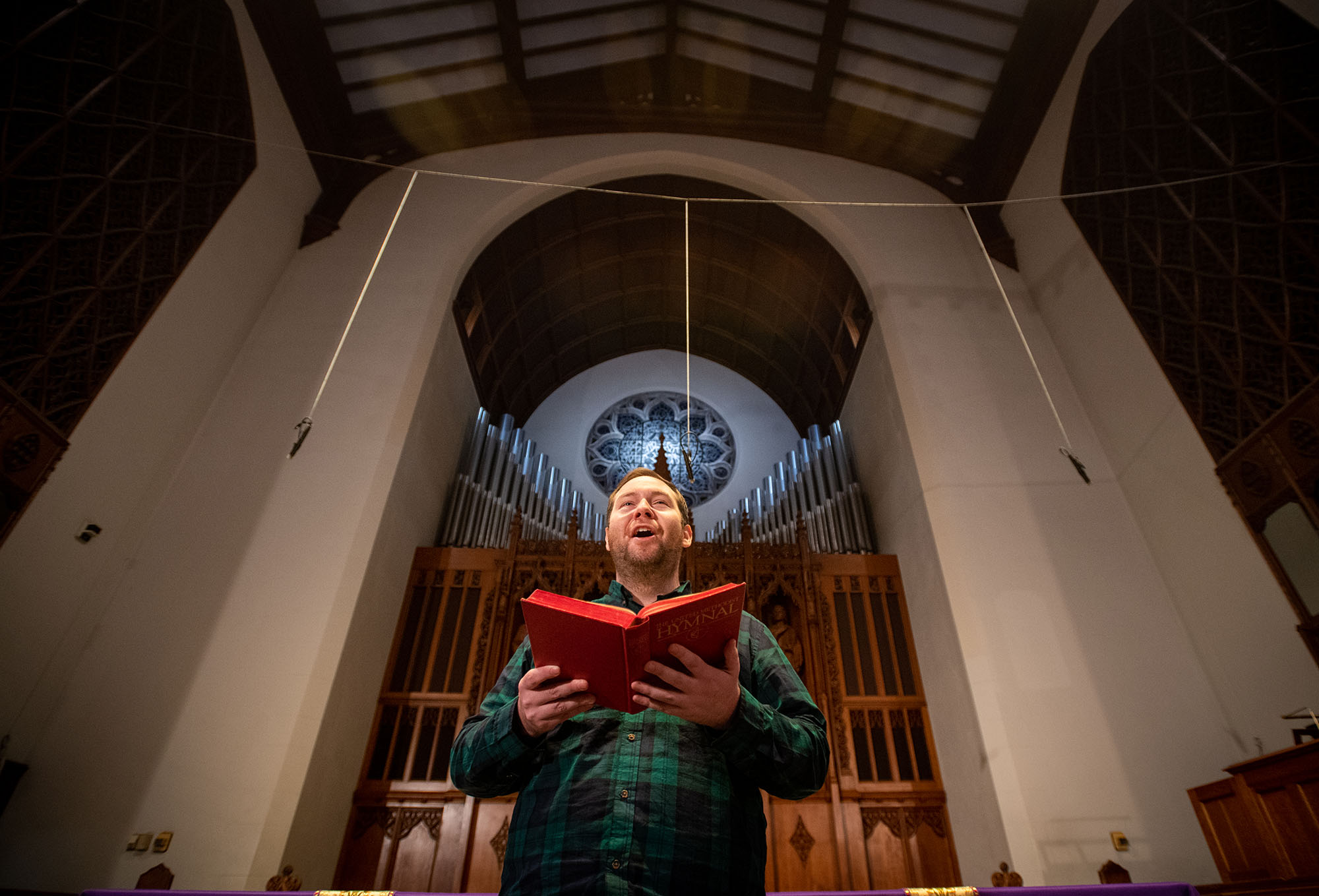
“As a Lutheran, faith to me is a bold trust in the amazing grace of God. In short, God is love. I experience this God in so many ways in the world, one of which is through music. Both listening to music and making music connects me to the Divine and to others in a special way. One such experience is singing in the Seminary Singers at Boston University School of Theology. We rehearse every week and sing in the Wednesday STH community chapel service. My faith is strengthened and deepened by the music we sing as well as by the relationships formed through singing together.”
Jonathan Allen (LAW’19), BUild Lab Innovator-in-Residence, Interfaith
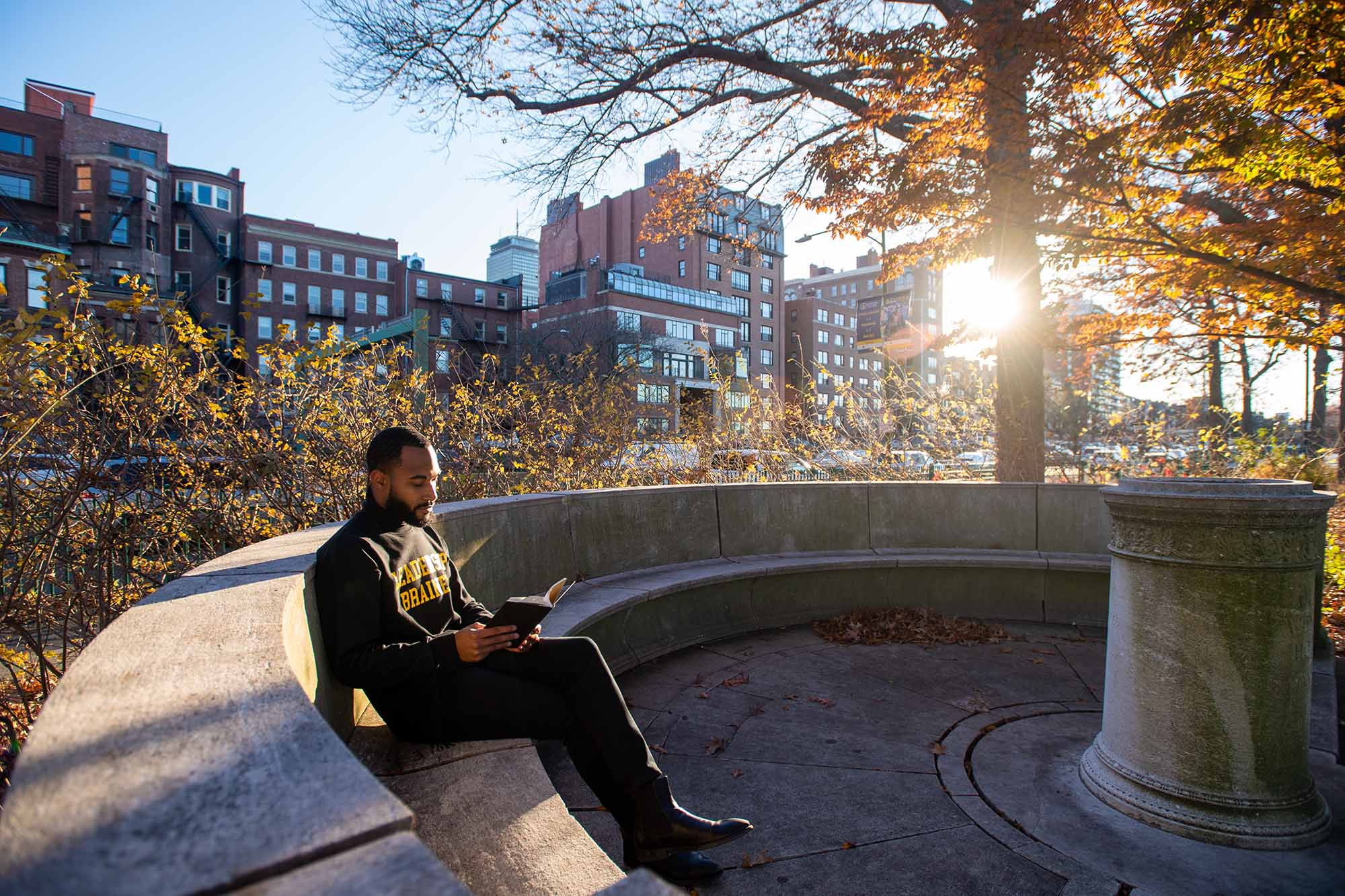
“As an interfaith leader concerned with social transformation, I practice taking care of myself by developing self-awareness, social awareness, and spiritual awareness. Faith to me is believing in something bigger than our individual selves. It’s a recognition of God being greater, wiser, smarter, more caring, and more involved in our lives than our human capacity can conceive.
“Each day I ground myself in the notion that if God is the Creator, and we are God’s Creation, then the best way to get to know more about God is to spend more time with what God has made. I believe that we need each other regardless of gender, race, ethnicity, national origin, socioeconomic status, sexual orientation, educational level, religious background, or even political party.
“Irrespective of our religious affirmations, God’s love and heart for justice transcends doctrine. We have an obligation, a collective responsibility, to treat all living things with dignity and respect. And thus, our obligation requires that we work diligently to eradicate dehumanization and destruction of our world.”
Kayla Marks (Pardee’23), Jewish
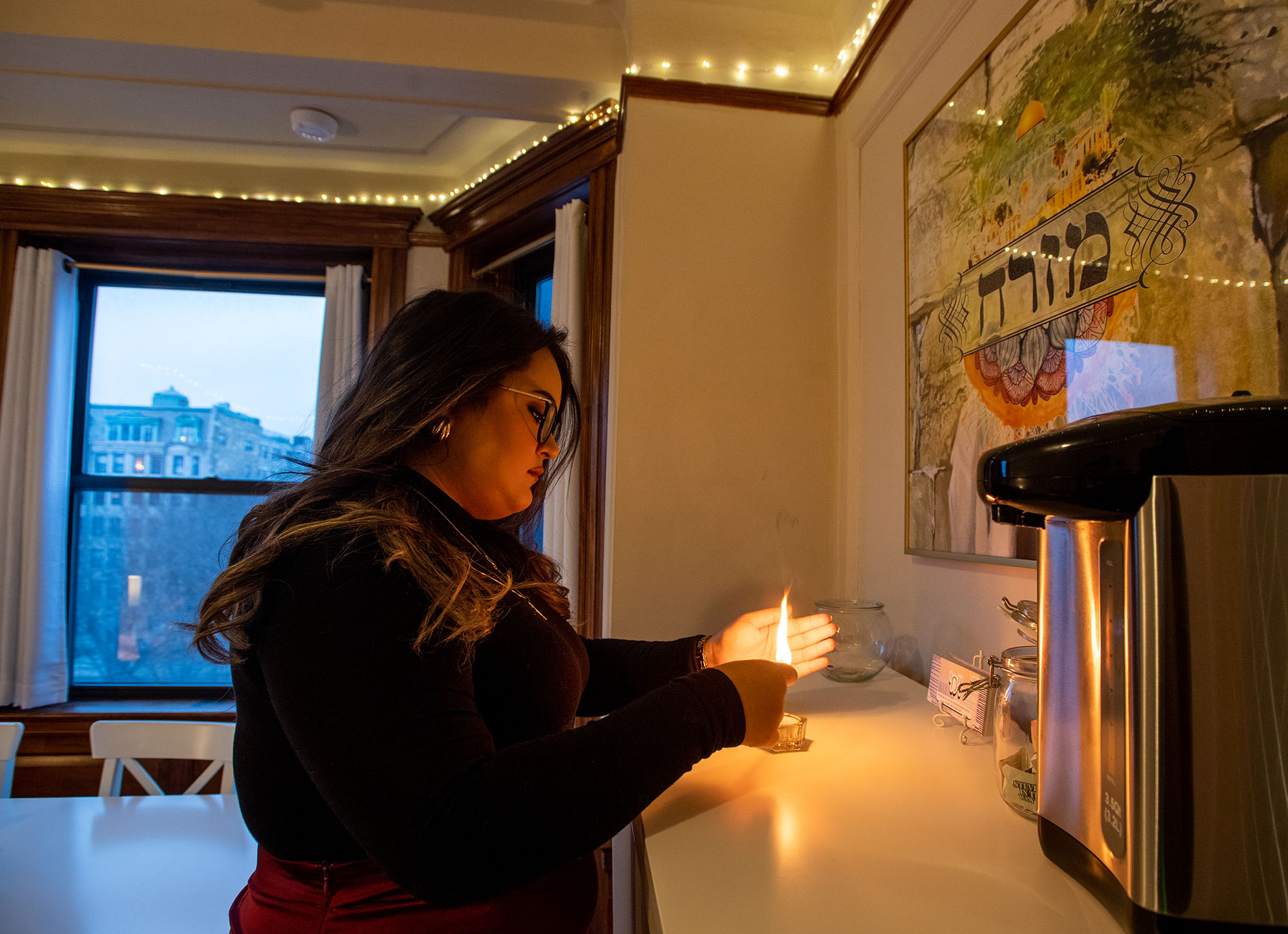
“My religion, Judaism, beyond defining my beliefs, provides me with guidelines for living a meaningful life. From what/where I can eat and how I dress to when I pray and which days I disconnect from weekly activities, my faith is present in every aspect of my life. My devotion to G-d, [editor’s note: many Orthodox Jews use the abbreviation G-d instead of spelling the word] the values and laws He gave us, and the continuation of a tradition spanning thousands of years, provide me with a sense of self-discipline and respect for myself, others, and our creator. Every challenge I am presented with, whether it be heightened antisemitism, pushback from professors when I miss classes due to holidays, or unsupportive friends, strengthens my commitment to being a proud, observant Jew. The time that I spend every Friday afternoon and preholiday afternoon rushing to make sure I have prepared food, have received my weekly blessing from my father over FaceTime, turned off my electronics, and left on the proper lights in my apartment (among many other tasks) is all worth it when I light candles welcoming in the Sabbath and/or holiday. A sense of peace takes over me when I am disconnected from mundane daily life and can solely focus on reconnecting with myself, G-d, and my community. Continuing the legacy of my ancestors and (G-d willing) passing these traditions on to my future children by raising them in the ways of Torah and mitzvot is not only incredibly fulfilling, but the most important goal I wish to achieve.”
Explore Related Topics:
- Photography
- Share this story
- 13 Comments Add
Photojournalist

Cydney Scott has been a professional photographer since graduating from the Ohio University VisCom program in 1998. She spent 10 years shooting for newspapers, first in upstate New York, then Palm Beach County, Fla., before moving back to her home city of Boston and joining BU Photography. Profile
BU Today staff Profile
Comments & Discussion
Boston University moderates comments to facilitate an informed, substantive, civil conversation. Abusive, profane, self-promotional, misleading, incoherent or off-topic comments will be rejected. Moderators are staffed during regular business hours (EST) and can only accept comments written in English. Statistics or facts must include a citation or a link to the citation.
There are 13 comments on Photo Essay: What My Faith Means to Me
Beautifully done Cydney and all!
Thank you for the article. Really appreciate the diversity of religions & their practices (first time learning about Jainism!). Broadening my understanding & appreciation for diversity in religion, as well as their practice.
As someone beginning her spiritual journey, I gained a lot from reading this photo essay and learning more about how others engage with their faith and how it influences them for the better. Thank you for showing me a window into these different lifestyles. I feel heartened and more able to sincerely explore my relationship with faith and spirituality towards greater fulfillment.
This is the best article I’ve ever photo essay I’ve read in some time. Beautiful images that capture the spiritual lives of BU’s community.
Thank you for this great article and touching photos. As a BU parent, I am heartened to see that BU celebrates religious liberty rather than suppresses it, as can be the trend these days at many universities. Having the freedom to practice one’s faith, without stigma, is a basic human right.
Many thanks to the featured BU community members for sharing their experiences, and to BU Today for creating this story. I really enjoyed it!
Tremendous piece—wonderful photos and wonderful essays. Thank you for sharing!
Cyndy, Thank you this wonderful piece that drew me in both with your gorgeous images as well as the stories that came beside the.
Beautiful Spiritual revelations lighting a dark and disturbed world!
When I was a student at B.U. I took Greek and Hebrew at the STH (CLA ’77). I am thrilled to open up the B.U. Website and explore this article by Cyndy Scott. Exploring the faith of B.U. people has broaden my experience. I had not heard of Jainism. Thank you for this. Now, I am an ordained Presbyterian minister now living in Canada. I will share this article with my congregation.
Thank you for such an inspiring and wholesome article. Keep up the amazing work!
I really enjoyed reading through this. I am pentecostal holiness myself. I grew up in the bible-belt (GA). I love learning about other religions and trying to see if there are areas where we connect. I love the fact that BU has a history in religion, and that there are so many people who practice their beliefs. I love reading how their religion(s) help them in their daily lives. #Diversity
I really enjoyed reading through this. I am pentecostal holiness myself. I grew up in the bible-belt (GA). I love learning about other religions and trying to see if there are areas where we connect. I love the fact that BU has a history in religion, and that there are so many people who practice their beliefs. I love reading how their religion(s) help them in their daily lives. #Diversity SPECIALLY like using the word ayatkursi
Post a comment. Cancel reply
Your email address will not be published. Required fields are marked *
Latest from BU Today
Bu’s earth day celebrations, tenth annual giving day raises more than $3.8 million, bu freshman macklin celebrini named a hobey baker award finalist, photos of the month: a look back at march at bu, what’s hot in music this month: new releases, local concerts, the weekender: april 4 to 7, could this be the next snl bu student’s wicked smaht comedy troupe performs this weekend, determined to make the world a better place, giving day 2024: bu celebrates 10 years of giving back, your everything guide to landing an internship, building a powerhouse: how ashley waters put bu softball on the map, sex in the dark: a q&a event with sex experts, tips to watch and photograph the april 8 total solar eclipse safely, for cfa’s head of acting, huntington role required discretion, listening, biden’s biggest challenges to reelection—immigration, gaza, and even the economy, boston university drops five-day isolation requirement for covid, the weekender: march 28 to 31, bridge collapse creates conversation in bu structural mechanics class, terriers in charge: favor wariboko (cas’24), the bold world of marcus wachira.
Cote d'ivoire
South africa, philippines, south korea, netherlands, switzerland, el salvador, latinoamérica y el caribe, puerto rico, trinidad & tobago, united states, new zealand.
- How to Know God
Do you ever wonder what Christians believe? Who Jesus is, what he did and why it matters? Get answers to these questions and more.
- Spiritual Growth
Take the next step in your faith journey with resources on prayer, devotionals and other tools for personal and spiritual growth.
- Life & Relationships
Explore resources to help you live out your life and relationships in a way that honors God.
- Bible Studies
Find resources for personal or group Bible study.
- Share the Gospel
Learn to develop your skills, desire and ability to join others on their spiritual journeys and take them closer to Jesus.
- Help Others Grow
Help others in their faith journey through discipleship and mentoring.
- Leadership Training
Develop your leadership skills and learn how to launch a ministry wherever you are.
- Language Resources
View our top Cru resources in more than 20 languages.
- Quizzes & Assessments
Have some fun taking various quizzes and assessments to learn about yourself and others.
Helping students know Jesus, grow in their faith and go to the world to tell others.
Reflecting Jesus together for the good of the city.
Partnering with urban churches to meet physical and spiritual needs.
Striving to see Christ-followers on every team, in every sport and in every nation.
Equipping families with practical approaches to parenting and marriage.
- High School
Reaching students and faculty in middle and high school.
Bringing hope and resources to military families worldwide.
- Locate Cru Near You
- Mission Trips
Volunteer abroad this year on a short term global missions trip offered by one of the best, most-reliable Christian missions organizations in the world.
- 1-Year Full-Time Internships
Internship opportunities with Cru's ministries.
If you're looking for the best Christian jobs and careers, check out Cru's ministry job openings for full- and part-time missionaries and professionals.
- Go International
Live in another country building relationships and ministries with eternal impact.
- Volunteer Opportunities
Would you like to give your time to work with Cru? We need you.
Find a Cru event near you.
- Explore Your Interests
Use your hobbies and interests to find the best place for you to serve.
How we seek to journey together with everyone towards a relationship with Jesus.
- Donor Relations
Answers to questions on donations, financial policies, Cru’s annual report and more.
- Statement of Faith
What we believe about the gospel and our call to serve every nation.
- Our Leadership
Learn about Cru's global leadership team.
- Cru Partnerships
When the global church comes together then powerful things can happen.
Leading from values so others will walk passionately with God to grow and bear fruit.
- Oneness in Diversity
Cru’s position on oneness in diversity.
- Sexuality and Gender
Today we encounter a wide variety of questions related to sexuality and gender. As followers of Christ, we want to navigate LGBT+ questions in a way that is compassionate to people and faithful to scripture.
Showing God in action in and through His people.
Hear what others are saying about Cru.
- Start A New Gift
- Missionaries
- Featured Opportunities
- More Ways to Give
Your Account
- Your Giving
- Payment Methods
- Donor-Advised Funds
- Stock and Non-Cash Gifts
- Cryptocurrency
- Planned Giving with Cru Foundation

Turn on The Light
Help people hear the true message of Jesus 60 million times this year!
My Story: How My Life Changed
- What is the Meaning of Life?
Can I Find Peace?
Will i ever be good enough, will i ever be free, can i be forgiven.
- Cru22 Recorded Sessions
We All Have a Story
The stories God writes for us take us down various paths. No matter where you are on the journey, there is a plan and a purpose to what you experience.
If you are struggling, take comfort in knowing you are not alone. We hope you will be encouraged to read about the experiences of others who have seen the transforming work of Jesus in their lives.

READ THE STORIES OF THOSE WHO HAVE ASKED ...

What Is the Meaning of Life?
You are not alone if you have ever wondered about the meaning of life or about the purpose of your own. Here are the testimonies of some who received answers to these questions.

It’s human nature to pursue happiness by trying to rigorously work your way there. Here are the stories of some who found true peace by doing just the opposite.

Ever wonder if true love actually exists? Or if you’ll ever be accepted for who you really are? Many of us have found ourselves pondering these questions. Here are the stories of some who once asked the same.

Many people think you have to change before you come to God, but the opposite is true. Here are the stories of lives that were snatched from the grip of darkness and brought into the light.

In Luke 7, Jesus explains that the more a person is forgiven of, the more grateful that person will be. Here are the stories of some who know that to be true.
Stories From Other Religions

From Judaism to Christianity

From Hinduism to Christianity

From Buddhism to Christianity

From Mormonism to Christianity

From Atheism to Christianity

Would You Like to Know God Personally?
What does it take to begin a relationship with God? These principles will explain how you can personally begin a relationship with God, right now, through Jesus Christ.

What Is Your Story?
Everyone has a unique story about coming to Christ.
Learn how to prepare, write and share yours here.

Organize and Build Relationships With MissionHub
Your life and your story are full of people you care about. Many of them may not know Jesus yet. MissionHub is a free app designed to help you choose steps of faith to take with someone you live, work, study or play alongside.

©1994-2024 Cru. All Rights Reserved.

Spiritual Journey Essays Examples: Faith!
Spiritual journey essays are reflective pieces that delve into an individual’s personal exploration of their own beliefs, faith, or spiritual experiences .
These essays often discuss challenges faced, lessons learned, and the personal growth that comes from such journeys.
A spiritual journey essay is a personal narrative that explores the writer’s journey towards a deeper understanding of their spiritual beliefs.
This might mean recounting personal experiences that led to a strengthening of faith, exploring the impact of certain religious practices, or reflecting on how a spiritual journey has influenced personal growth.

Table of Contents
Key Takeaway
5 interpretations: spiritual journey essays examples, personal experiences that shape individual spiritual journeys.
Exploring the intricacies of individual spiritual journeys through personal experiences is a compelling topic in spiritual journey essays.
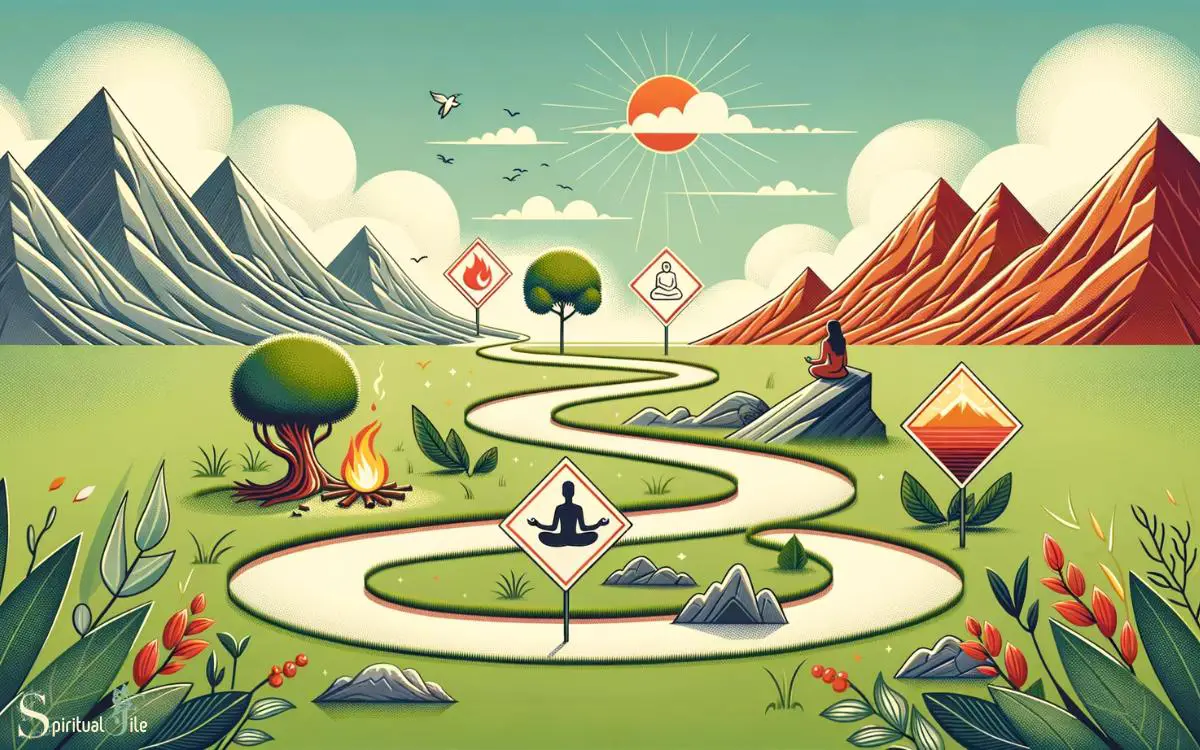
These essays provide real-life examples that shape and influence one’s unique path to spiritual enlightenment.
Effect Of Life Events On Spiritual Growth:
Personal experiences play a vital role in shaping an individual’s spiritual journey. These life events can significantly impact one’s beliefs, values, and overall spiritual growth.
Life events can be both positive and negative, such as a profound loss, a life-altering epiphany, or a joyful celebration. Each experience brings unique lessons and insights that contribute to the development of spirituality.
Positive life events, like finding true love or achieving personal goals, often evoke feelings of gratitude, contentment, and a deeper connection to a higher power.
These events can fuel spiritual growth by strengthening faith and providing a sense of purpose and meaning in life.
On the other hand, challenging life events like illness, betrayal, or failure can lead to profound introspection and self-reflection.
These difficult moments often prompt individuals to question their beliefs, seek spiritual guidance, and explore new paths of understanding.
Adversities faced during life can act as catalysts for spiritual exploration, allowing individuals to cultivate resilience, compassion, and empathy. They can break down preconceived notions, opening the door to new perspectives and spiritual growth.
Challenges Faced During Spiritual Exploration:
Embarking on a spiritual journey is not always smooth sailing. It comes with its own set of challenges and obstacles that individuals must overcome to deepen their understanding of themselves and their spirituality.
One of the primary challenges is the resistance to change. The comfort of familiar beliefs and religious doctrines can hinder individuals from exploring new philosophies or spiritual practices.
Overcoming this resistance requires openness, curiosity, and a willingness to challenge preconceived notions.
Another challenge is the fear of uncertainty. Exploring the unknown and questioning long-held beliefs can be unsettling.
It requires individuals to confront their fears, embrace ambiguity, and trust in the process of self-discovery.
Societal and cultural pressures can pose obstacles to spiritual exploration. Conforming to societal norms and expectations may discourage individuals from following their own unique spiritual paths.
Breaking free from these external influences can be challenging, but it allows individuals to authentically connect with their own beliefs and values.
Lastly, the quest for spiritual understanding often involves periods of doubt and confusion. The journey may involve encountering conflicting teachings or questioning the existence of a higher power.
These moments of uncertainty can be unsettling but can also lead to deeper insights and a more profound sense of spirituality when embraced with an open and curious mind.
Role Of Introspection In Understanding One’s Spiritual Path:
Introspection plays a crucial role in unraveling the complexities of one’s spiritual journey. It involves examining one’s thoughts, emotions, and experiences to gain deeper self-awareness and understanding.
Through introspection, individuals can reflect on their values, beliefs, and behaviors, allowing them to align their spiritual path with their true selves.
It encourages individuals to question their motives, desires, and intentions, ensuring authenticity and sincerity in their spiritual exploration.
Introspection also facilitates the identification and examination of personal biases and conditioning that may limit spiritual growth.
By examining these subconscious influences, individuals can break free from societal expectations and embrace their own unique spiritual paths.
It allows individuals to uncover patterns and connections between their actions and their impact on their spiritual journey.
Remember, life events can shape our spiritual growth, but it is the challenges faced and the role of introspection that allows us to understand our spiritual path on a deeper level. Let us explore and embrace these aspects to embark on a transformative spiritual journey.
Essay Writing Aids In Self-Reflection And Growth
Essay writing serves as a valuable tool for self-reflection and personal growth on a spiritual journey.

Through thoughtful introspection and expression of our experiences, beliefs, and emotions, we gain deeper insights, expand our understanding, and evolve in profound ways.
Expressing Emotions And Insights Through Essays:
- Writing essays allows individuals to express their thoughts, emotions, and personal experiences, leading to self-reflection and growth.
- Essay writing provides a creative outlet for individuals to articulate their spiritual journey, giving voice to the complexities and nuances of their inner experiences.
- Through the power of words, essays enable individuals to convey their deepest emotions, allowing for a deeper understanding of oneself and one’s spiritual path.
- Essays serve as a platform to explore and share personal insights, helping to foster self-awareness and personal growth.
Developing Clarity And Perspective On Spiritual Experiences:
- Writing essays about spiritual experiences helps to bring clarity and understanding to complex thoughts and emotions that may arise during one’s spiritual journey.
- By putting experiences into words, individuals gain a clearer perspective on their spiritual path, allowing them to uncover deeper meanings and insights.
- Through the process of writing, individuals may discover new connections and patterns in their experiences, leading to a greater understanding of their own spirituality.
- Writing essays provides an opportunity to reflect on spiritual practices, beliefs, and encounters, facilitating personal growth and development.
Finding Support And Connection Through Sharing Personal Stories:
- Sharing personal stories through essays creates a sense of connection and support within the spiritual community, as others may resonate with similar experiences or find inspiration in one’s journey.
- Writing and sharing essays fosters a sense of belonging, as individuals realize they are not alone in their spiritual quest and can draw strength from the shared experiences of others.
- Personal stories shared through essays can provide comfort, guidance, and encouragement to those who may be facing similar challenges or seeking validation on their own spiritual path.
- The act of sharing personal stories through essays allows for a collective sense of empathy and understanding, creating a supportive network of individuals on a shared spiritual journey.
Remember , essay writing serves as a transformative tool for self-reflection, clarity, and connection on one’s spiritual journey.
By expressing emotions and insights, developing perspective, and sharing personal stories, individuals can navigate their spiritual path with greater understanding and growth.
Insights From Real-Life Spiritual Journey Essays
Discover profound insights and real-life examples through spiritual journey essays, exploring the depths of personal transformation and enlightenment.

These soul-stirring narratives offer a unique perspective on the transformative power of spiritual exploration.
Essay Example 1: Overcoming Adversity And Finding Inner Peace
In this essay example, the author delves into their personal journey of overcoming adversity and finding inner peace.
The essay reflects on the challenges faced and the lessons learned along the way. Through their experiences, the author highlights the transformative power of resilience, self-reflection, and spirituality.
Here are the key insights from this spiritual journey essay:
- Coping with loss: The essay explores how the author dealt with the loss of a loved one, sharing their emotional journey and the strategies they employed to navigate through grief.
- Embracing spirituality: The author discusses how they turned to spirituality as a source of solace during challenging times, emphasizing the importance of faith and belief in finding inner peace.
- Practicing gratitude: The essay elucidates the role of gratitude in the author’s spiritual journey, highlighting how focusing on the positive aspects of life helped them cultivate a sense of serenity and contentment.
- Forgiveness and letting go: The author reflects on their process of forgiving others and themselves, realizing that holding onto resentment and past grievances only hindered their spiritual growth.
- Finding purpose: Through their journey, the author discovered the significance of aligning their actions with their values and passions. They discuss how this sense of purpose contributed to their overall well-being and spiritual fulfillment.
Essay Example 2: Rediscovering Faith Through Nature And Solitude
This essay example revolves around the author’s experience of rediscovering their faith through connecting with nature and embracing solitude. It sheds light on the profound impact of natural surroundings and the solitude it offers.
The following insights emerge from this spiritual journey essay:
- Seeking solace in nature: The essay recounts the author’s encounters with nature, emphasizing the sense of peace and spiritual connectedness they felt while immersing themselves in the beauty of the natural world.
- Embracing solitude: The author discusses how solitude allowed them to reconnect with their inner self, providing an opportunity for self-reflection and a deeper understanding of their faith.
- Finding god in the details: Through their experiences, the author discovered the divine presence in the intricate details of nature, recognizing the interconnectedness of all living beings and the universe as a whole.
- Renewed faith: The essay traces the author’s journey of rediscovering their faith and the profound impact it had on their sense of purpose, inner strength, and overall well-being.

Essay Example 3: Seeking Enlightenment Through Mindfulness Practices
This essay example revolves around the author’s quest for enlightenment through mindfulness practices such as meditation, mindfulness exercises, and self-reflection.
It explores how these practices have contributed to their spiritual growth and quest for deeper understanding.
Embracing mindfulness: The author explains how incorporating mindfulness practices into their daily life helped them develop a heightened sense of awareness and presence, enabling them to experience a deeper connection with themselves and the world around them.
Navigating the inner landscape: The essay delves into the author’s process of self-discovery, highlighting the importance of introspection and exploring one’s thoughts and emotions as a means of uncovering truths and attaining spiritual enlightenment.
Letting go of attachments: The author reflects on the significance of detaching from material possessions, desires, and ego-driven ambitions, recognizing that true fulfillment and peace lie in letting go of attachments and finding contentment in the present moment.
Nurturing compassion and gratitude: The essay discusses how mindfulness practices have helped the author cultivate compassion for themselves and others, fostering a sense of interconnectedness and gratitude for the blessings in their life.
By exploring the personal stories and insights shared in these spiritual journey essays, we gain valuable perspectives on the transformative power of resilience, faith, nature, solitude, and mindfulness.
These examples serve as inspirations for our own spiritual journeys, reminding us of the profound potential for growth, peace, and enlightenment that lie within our reach.
Common Threads And Valuable Lessons From Diverse Spiritual Experiences
Discover the common threads and valuable lessons that emerge from a collection of diverse spiritual experiences.
These powerful essays exemplify the transformative nature of the spiritual journey. Explore the rich tapestry of personal insights and reflections that will uplift and inspire.

Spiritual journeys can take many forms, ranging from personal revelations to transformative experiences that shape one’s entire life.
These journeys are highly individual, reflecting the diversity of human experience and the pursuit of higher meaning.
While each spiritual journey is unique, there are common threads that connect them, as well as valuable lessons that can be learned along the way.
Acceptance And Surrender As Catalysts For Spiritual Growth
Acceptance: Embracing life as it is and accepting oneself without judgment can pave the way for spiritual growth.
By acknowledging and embracing our flaws, mistakes, and imperfections, we learn to cultivate self-compassion and develop a deeper understanding of ourselves and others.
Surrender: Letting go of control and surrendering to a higher power or divine guidance can lead to profound spiritual transformation.
It requires relinquishing the ego and trusting in the wisdom of the universe, allowing for greater alignment with one’s true purpose.
Finding Meaning And Purpose In Challenging Times
Resilience: Navigating difficult situations often prompts individuals to reflect on their values and priorities, leading to a deeper understanding of themselves and their place in the world.
Self-reflection: Challenging times provide an opportunity for introspection and self-discovery. Through introspection, individuals can uncover their core beliefs, values, and passions, enabling them to align their actions with their true purpose.
Inner strength: Adversity can reveal hidden reservoirs of strength that individuals didn’t know they possessed.
Finding meaning in difficult experiences helps cultivate resilience and empowers individuals to navigate future challenges with a sense of purpose and determination.
Developing Connection With The Divine And The Self
Meditation and mindfulness: Practices such as meditation and mindfulness enable individuals to quiet the mind, cultivate self-awareness, and deepen their connection with the divine.
By tuning into the present moment, one can access a profound sense of peace and a deeper connection to their spirituality.
Nature and the sacred: Many spiritual journeys involve finding solace and connection in nature. By immersing oneself in the beauty and awe of the natural world, individuals can tap into a sense of wonder and transcendence that nurtures their spiritual growth.
Authenticity and self-expression: Honoring one’s true self and expressing it authentically allows for a deepening connection with both the self and the divine.
When individuals embrace their unique gifts, talents, and passions, they align themselves with their spiritual essence and invite greater joy and fulfillment into their lives.
Each spiritual journey is a deeply personal exploration , guided by one’s own beliefs, experiences, and yearnings.
What unites these diverse journeys are the universal themes of acceptance, surrender, finding meaning in challenges, and developing a connection to the divine and the self.
Embracing these common threads and integrating the valuable lessons learned along the way can foster spiritual growth and fulfillment on the path to higher consciousness.
How Spiritual Journey Essays Inspire And Provoke Introspection In Others?
These examples of spiritual journey essays inspire profound introspection in readers by delving into the depths of personal experiences, offering insights and wisdom.

Embarking on such a journey through the pages of these essays evokes a sense of connection to something greater, stirring the reader’s own reflective thoughts.
Validation And Resonance For Those On A Similar Journey
- Spiritual journey essays provide a sense of validation and resonance for individuals who are embarking on a similar path of self-discovery and spiritual exploration.
- These essays offer a glimpse into the lived experiences, challenges, and triumphs of others who have walked a similar spiritual path, allowing readers to connect and feel understood in their own journey.
- Through the sharing of personal stories, these essays communicate a deep sense of empathy and companionship, reminding readers that they are not alone in their quest for spiritual fulfillment.
- The relatability of these essays fosters a sense of validation, assuring readers that their questions, doubts, and spiritual experiences are valid and worthy of exploration.
Expanding Perspectives And Challenging Beliefs
- Spiritual journey essays have the power to expand perspectives and challenge established beliefs by offering alternative ways of understanding and engaging with spirituality.
- By sharing their personal experiences, perspectives, and insights, authors of these essays invite readers to question their own beliefs and consider new possibilities.
- These essays prompt readers to critically examine their spiritual frameworks and beliefs, encouraging them to transcend limitations and explore a more expansive understanding of spirituality.
- Through thought-provoking narratives and reflections, spiritual journey essays invite readers to open their minds and embrace new ideas, paradigms, and spiritual paths.
Encouragement To Embark On One Unique Spiritual Exploration
- Spiritual journey essays serve as a source of encouragement and inspiration for individuals who are contemplating embarking on their own unique spiritual exploration.
- Through the sharing of transformative personal experiences, these essays ignite a sense of curiosity and yearning within readers, prompting them to seek their own spiritual paths.
- These essays highlight the transformative power of embarking on a spiritual journey and emphasize the importance of individual agency in forging one’s own path.
- By showcasing the profound personal growth, self-discovery, and fulfillment that often arises from embarking on a spiritual journey, these essays inspire readers to take that first step towards their own unique exploration.
How do African American spirituals reflect the theme of faith in your spiritual journey essays?
In your spiritual journey essays, you can explore the powerful theme of faith through African American spirituals examples . These soulful and emotive songs often express deep faith, resilience, and hope in the face of adversity. By analyzing these spirituals, you can gain valuable insights into the role of faith in your own spiritual journey.
Tips For Creating Impactful And Authentic Spiritual Journey Essays

Discover how to create impactful and authentic spiritual journey essays with these expert tips. Learn how to craft compelling narratives that resonate with readers, using vivid language and personal experiences to bring your spiritual journey to life.
Being vulnerable and sharing personal experiences:
- Share personal moments: Open up about the significant moments and experiences that have shaped your spiritual journey.
- Express emotions: Embrace vulnerability by sharing the emotional impact of your spiritual quest.
- Reflect on personal growth: Discuss the personal growth and lessons learned throughout your journey.
- Connect with readers: Create relatable content that resonates with readers by showcasing your authentic self.
Creating a narrative arc with a clear theme and message:
- Outline the structure: Start with an introduction to set the stage, followed by the development of your journey and its challenges, and conclude with a reflection or resolution.
- Establish a clear theme: Identify the central theme or message of your essay and ensure it is consistently conveyed throughout.
- Build a compelling storyline: Engage readers by crafting a narrative that allows them to follow your spiritual journey.
- Incorporate supporting details: Use vivid descriptions, anecdotes, and examples to enhance your narrative and reinforce your message.
Embracing the power of storytelling to captivate readers:
- Craft a captivating opening: Start with a hook that grabs readers’ attention and draws them into your narrative.
- Use descriptive language: Paint a vivid picture of the people, places, and experiences that have shaped your journey.
- Show, don’t tell: Engage readers through storytelling by providing concrete examples and allowing them to draw their own conclusions.
- Maintain a consistent voice: Establish a unique voice that reflects your personality and allows readers to connect with your story.
Remember, creating impactful and authentic spiritual journey essays requires vulnerability, a clear narrative structure, and the power of storytelling.
By incorporating these tips into your writing, you can captivate readers and leave a lasting impression with your essay.
Embarking on a spiritual journey through essay writing can be a transformative experience. It allows individuals to reflect, analyze, and connect with their inner selves in profound ways.
By reading spiritual journey essays, we gain insight into the struggles, triumphs, and personal growth of others, inspiring us to delve deeper into our own spirituality.
These essays serve as a reminder that everyone’s journey is unique, and there is no right or wrong path to follow.
As we immerse ourselves in these narratives, we discover the power of vulnerability and honesty, paving the way for self-discovery, enlightenment, and a deeper connection with the divine.
Through the power of storytelling, these essays offer solace, guidance, and a profound sense of community.
So, let these examples be a catalyst for your own spiritual exploration, allowing your inner light to shine brightly on your unique odyssey.
Similar Posts

Give Five Examples of Spiritual Parents in the Bible: Moses!

Spirituality in the Workplace Examples: Business Practices!

Examples of Spiritual Bypassing: Psychological Mechanism!

Examples of Spiritual Identity: Religious!
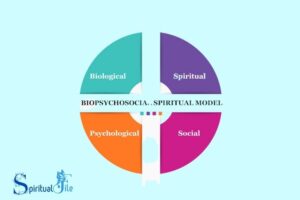
Biopsychosocial Spiritual Assessment Example: Social!
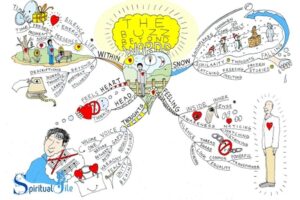
Spiritual Life Map Example: A Guide!
Leave a reply cancel reply.
Your email address will not be published. Required fields are marked *
Save my name, email, and website in this browser for the next time I comment.

The Empirical Power of Spiritual Experience
- Gospel Fare
- September 6, 2023
Interest in exploring reasons for religious hope has become increasingly prevalent. Some readers might be seeking answers or guidance for loved ones who are undergoing religious questioning, doubting, or even experiencing a faith crisis. Others may be hoping for some spiritual inoculation against such serious religious doubts for themselves and those they love.
Wonderful scholars in groups like the Foundation for Ancient Research and Mormon Studies , Fair Latter-day Saints , Book of Mormon Central , the New World Archeological Foundation , The Interpreter Foundation , and the BYU Maxwell Institute have discovered many fascinating, faith-supporting evidences for a variety of scriptural and historical questions and quandaries that can provide helpful reasons for hope.
A sacred experience can be a kind of scientific evidence.
Joseph Smith and the Power of Sacred Experience
Near the end of his life, The Prophet Joseph Smith stated, “I don’t blame anyone for not believing my history; if I had not experienced what I have , I could not have believed it myself.” Joseph Smith’s prayers of faith repeatedly opened the heavens. If a person with that kind of faith admitted that he could not have believed his story if he had not experienced it, then I believe that we should be very careful about what we expect others to believe without the benefit of some kind of personal sacred experience. We should also consider what Joseph’s statement may suggest about the power of personal experience in obtaining and sustaining religious belief. I think it suggests that some kind of personal spiritual experience is a prerequisite for many people for a firmly grounded and long-lasting religious belief and hope.
The Prophet’s statement also has implications for our efforts to consider reasons for our religious hopes. Joseph acknowledged that the things he experienced, and told others about, were not necessarily easy to believe. We Latter-day Saints should remember Joseph’s statement. In thinking about and conversing with our fellow Saints (including our loved ones) who are struggling with some aspect of belief in the Restored Gospel—or are doubting the whole enterprise—we would bless them by remembering that, for many, these are “hard things” to believe. Even if— especially if—our own belief came naturally or easily or clearly or is based on profound spiritual experience, we must remember Joseph’s statement.
LDS scholar Patrick Mason, in his book Planted: Belief and Belonging in an Age of Doubt , discusses the idea that we should not diminish the amazing strangeness of the core events and beliefs of Christianity in general, such as the Virgin Birth, miracles performed by Jesus, vicarious atonement for sin, and Christ’s resurrection. He also suggests that Latter-day Saints should not diminish the seeming strangeness in the history and beliefs of The Church of Jesus Christ of Latter-day Saints, such as the First Vision, multiple angelic visitations, gold plates, and translation through seer stones. Amid such strangeness, how does one find reasons to believe? I believe that sacred experience—personal encounters with God’s infinite love, redemptive power, and foreknowledge are of utmost importance.
Sacred Experience as Scientific Evidence
A sacred experience can be a kind of scientific evidence for religious truth. Let’s look carefully at the meaning of the word experience . As a boy, whenever I asked my mom what a word meant, rather than tell me, she would make me go get the dictionary and look it up. If a word was particularly important or interesting, she sent me to the Compact Edition of the Oxford English Dictionary , a three-volume, 22,000-page, 26-pound behemoth that comes with a magnifying glass. Since the word experience is both interesting and important, I followed Mom’s example and consulted the OED:
Experience:
1. The action of putting to the test, trial. An operation performed in order to ascertain or illustrate some truth, an experiment.
2. Proof by actual trial.
3. The actual observation of facts or events considered as a source of knowledge. (pp. 429-430).
It’s notable that Joseph said he “ could not” (rather than “ would not”) have believed his own story on word alone. Joseph’s statement suggests that to truly believe the kinds of amazing religious events that occurred in the early years of the Restoration, someone may need the kind of evidence or proof that can only come from personal sacred experience. Personal sacred experience is an ultimate form of evidence. It cannot be refuted by one’s own or anyone else’s rationalizing efforts to discount that proof. A downside, perhaps, is that such experience is not “transferrable.” It is yours alone, not binding on anyone else unless they obtain a spiritual witness that what you have shared is true and relevant to them.
Is It All in Your Head?
It is fashionable in some circles to dismiss spiritual, mystical, or religious experiences as merely internal, psychological experiences (“it’s all in your head”) as if such experiences are not real and perhaps even a sign of psychopathology.
In a recent article on this issue, Joshua Moritz referenced recent neuroscientific studies of spiritual, meditative, and mystical experiences and mentions that neuroscientists such as Eugene d’Aquili and Andrew Newberg suggest that,
“The fact that religious experiences result from neurochemistry (and can even be replicated) does not necessarily entail that belief in the objective reality of what is experienced is unjustified. Using SPECT (Single-photon emission computed tomography) scans to examine patterns of brain activity during spiritual experiences such as prayer and meditation, d’Aquili and Newberg demonstrated a clear foundation for these activities within the electrical and chemical activity of the brain. Finding that human religious experience is rooted in the biology of the brain, they concluded , contrary to Persinger, that it is quite possible—or even probable—that there is a corresponding reality that is beyond the brain. Indeed, contend d’Aquili and Newberg, such neural mechanisms mediating spiritual experience would not have evolved in the first place if there were not some corresponding reality that was being experienced.”
And, discussing the tendency of some to discount or dismiss spiritual experience because scientific studies have been able to “measure” electrical changes in the brains of those having them Moritz concluded that,
“Scientific research on spiritual experience has revealed that the details of brain chemistry and cognitive intuitions play a significant role in the life of faith. Yet this is also the case for all our experience of reality—our whole experience of our physical and psychological environment can also be reduced to the details of brain chemistry. Does this mean that such things as physical objects, colors, sounds, people, and the feeling of love are not real? ”
Moritz also quoted the neuroscientist Andrew Newberg who said,
“If you were to dismiss spiritual experience as ‘mere’ neurological activities…you would also have to distrust all of your own brain’s perceptions of the material world. But if we do trust our perceptions of the physical world, we have no rational reason to declare that spiritual experience is a fiction that is ‘only’ in the mind.
Therefore, while to some there is no rational, logical, or empirical reason to trust one’s own (much less others’) spiritual, mystical, or religious experiences, it seems that, in fact, we have as much reason to trust our spiritual experiences as to trust other aspects of our inner world.
Of course, the restored gospel provides a variety of “checks and balances” to personal spiritual experiences in the scriptures, the teachings of living prophets, and the gift of spiritual discernment available to members and leaders of the restored Church.
This brings us to the importance of recognizing, remembering, and recording personal sacred experiences.
Remembering by Recording the Things of Your Soul
Recognizing and remembering our own sacred experiences is crucial for our own spiritual progression. One of the most often repeated scriptural injunctions is to remember. One of the best ways to remember such experiences is to record them and share them with others.
Sacred records can provide sacred knowledge.
In 2018 I published my spiritual autobiography, God’s Tender Mercies: Sacred Experiences of a Mormon Convert (published before President Nelson requested us not to use the term “Mormon”). I spent many years writing about my own sacred experiences. I did so mainly to provide my children and grandchildren an authentic account of how the Lord brought me to Him. God had poured out a multitude of tender mercies in guiding me by a strong hand to read the Book of Mormon, providing me a sure witness of its truthfulness and cleansing my soul from sin.
In reflection, my journey through the years mirrors the formative stages many people of faith go through. While the intricacies of my experiences might vary from others, the core message remains universal. Every individual’s journey is marked by moments of doubt and reaffirmation. It’s in sharing these sacred experiences that we find common ground and strengthen our collective faith.
I shared verbal accounts of some of such spiritual experiences in a 2016 BYU Devotional and in an interview with Saints Unscripted . In Part II of this essay series, I will share portions of accounts of three experiences I had when I was a young adult and the ways they have given me reasons for hope in eternal realities. I will share three personal sacred experiences relating to questions about the possibility of knowing whether God exists, can answer persistent prayer, and can guide our lives.
In Part III of this series, I will share some thoughts about ways of sharing our sacred spiritual experiences in ways that are authentic and hopefully helpful to others. My particular experiences and the specific approach I use in discussing them are not what matters. What matters is whether hearing or reading another’s experiences might help you to recognize, remember, record, and/or share your experiences with others who will be blessed and strengthened by what you have experienced.
About the author
David Dollahite
Recent articles.
- Covering the Coverage
- Devotionals
- Four Corners
- Media & Education
- Politics & Law
- Public Square Media
- Radical Civility
- Sexuality & Family
- Think Twice
- Uncategorized
- Utah Scary Stories
- Women in the Public Square
- Back
- Political Atmosphere
- The 2020 Election
- Election Aftermath
- The 2024 Election
- The Father & Son
- Church & State
- Climate & End Times
- American Families of Faith
- Social Media
- Pop Culture
- Family Matters
- Generational
- Sexual Abuse
- Racial Healing
- Social Justice
- Mental Health

Fighting Relationship Entropy: An Expert’s Secret to Lasting Love

An Open Letter of Hope to David Archuleta
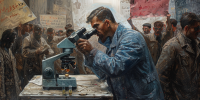
Is Psychology Facing an Identity Crisis?

No Simple Slogans for Israel and Gaza
It would help if we understood some of the complexities of the Israel-Gaza conflict that popular slogans ignore.
POPULAR ARTICLES

Our Culture of Contempt

Social Science is not Enough

What Past Attacks on Mormons and Catholics Teach Us About the Threat to Muslims

The Ghost of John McCain: Globalist Apathy vs. Populist Rage
Although John McCain passed away in 2018, his influence has extended far beyond that into 2020 and the election itself, in ways few people have fully considered.

Journalists embrace X's new identity but resist the Latter-day Saints', showing disparate media treatment.

Can temples justify their costs? What if those who built temples knew something that outside observers didn’t?

A near-death experience at 39 leads a mother to challenge her perceptions of entitlement, faith, and mortality.

Does the effort to craft a magical Christmas morning teach us something about the heart of a Father seeking to bring endless joy to us all?

The Church's teachings on gender, sexuality, and family are deeply rooted in doctrine and observable reality, suggesting limited scope for drastic changes.
You Might Also Like
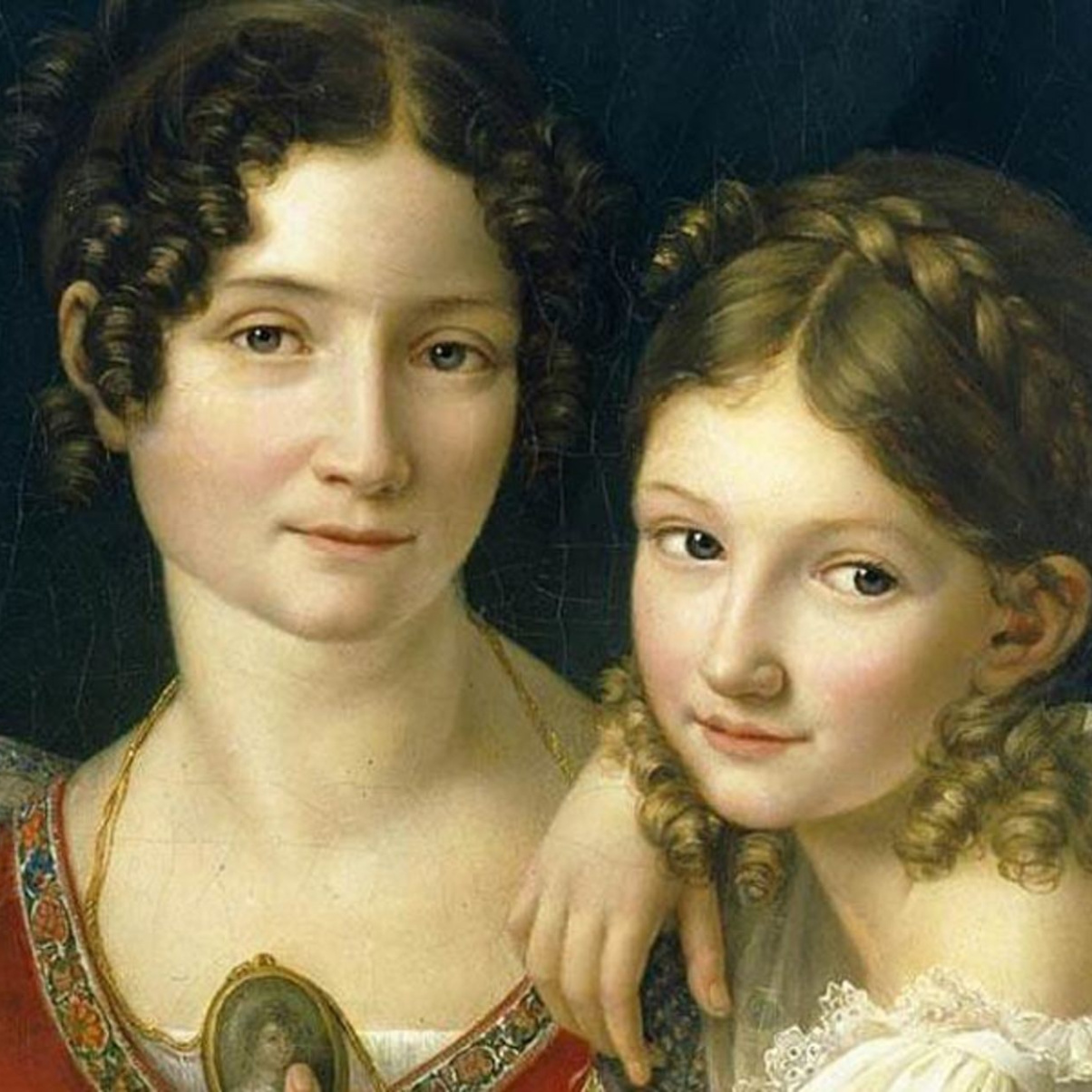
To the Parent of a Teen Identifying as Transgender
An open letter to Latter-day Saint parents of teens who have recently announced a transgender identity.
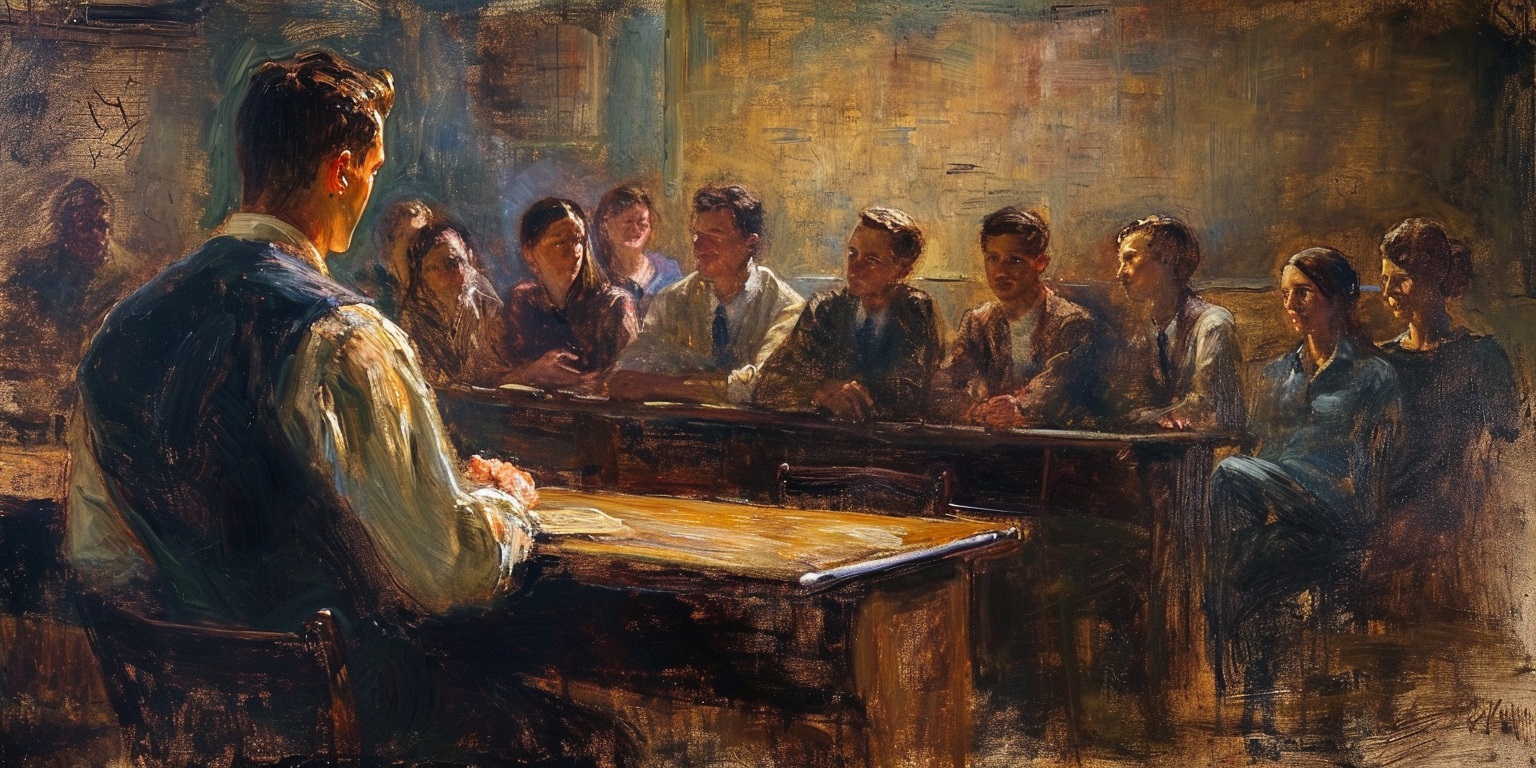
How Humility is Becoming the Next Revolution in Higher Education
In academia, servant leaders impact student lives through ethical guidance, respect, and adaptability.
Big Tech Censors Religion, Too
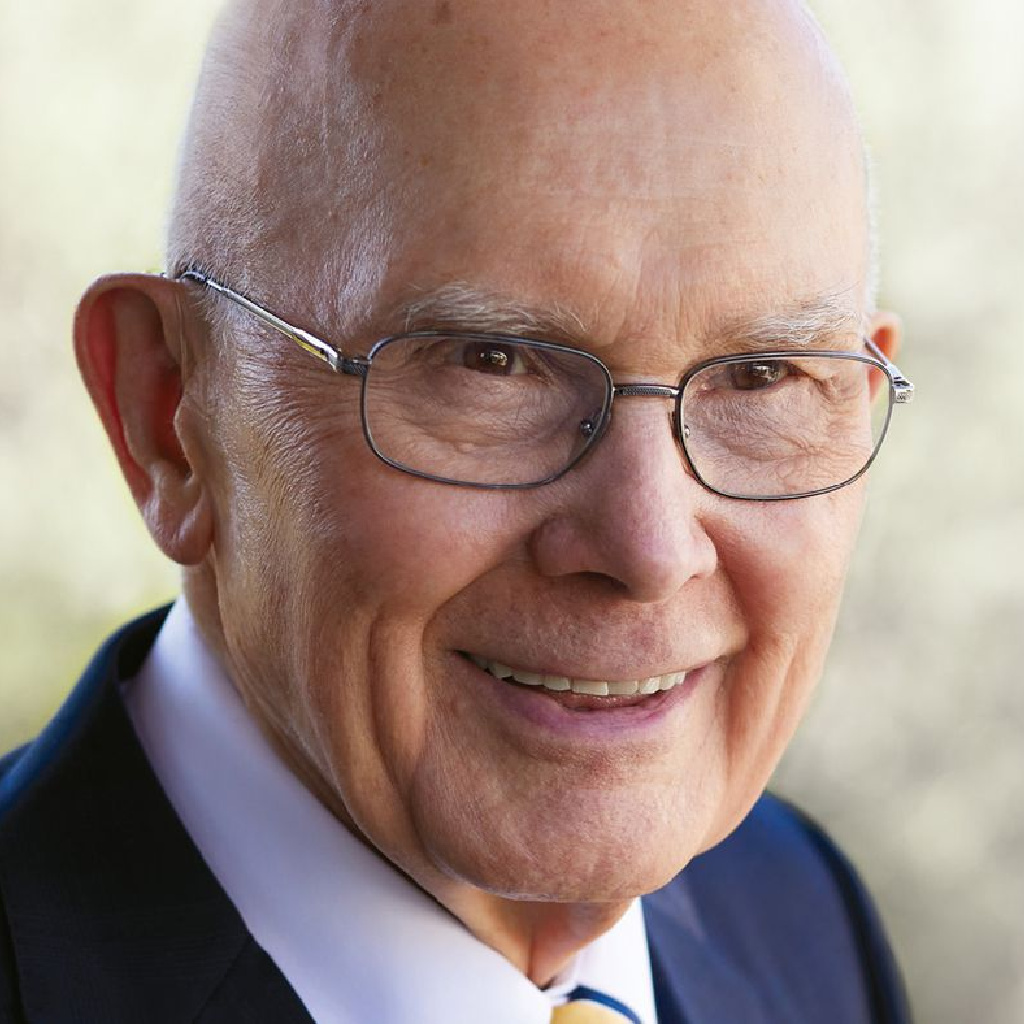
A Call For Countercultural Christianity
In an age where Christians (and everyone else) tend to flow with the cultural current, the remarks of President Dallin H. Oaks on Friday at the University of Virginia in Charlottesville were striking in their departure from popular rhetorical trends.

Subscribe To Our Weekly Newsletter
Stay up to date on the intersection of faith in the public square.
You have Successfully Subscribed!
Pin it on pinterest.
- Print Friendly
- Skip to main content
- Keyboard shortcuts for audio player

- LISTEN & FOLLOW
- Apple Podcasts
- Google Podcasts
- Amazon Music
Your support helps make our show possible and unlocks access to our sponsor-free feed.
The physical sensations of watching a total solar eclipse

Regina G. Barber

Science writer David Baron witnesses his first total solar eclipse in Aruba, 1998. He says seeing one is "like you've left the solar system and are looking back from some other world." Paul Myers hide caption
Science writer David Baron witnesses his first total solar eclipse in Aruba, 1998. He says seeing one is "like you've left the solar system and are looking back from some other world."
David Baron can pinpoint the first time he got addicted to chasing total solar eclipses, when the moon completely covers up the sun. It was 1998 and he was on the Caribbean island of Aruba. "It changed my life. It was the most spectacular thing I'd ever seen," he says.
Baron, author of the 2017 book American Eclipse: A Nation's Epic Race to Catch the Shadow of the Moon and Win the Glory of the World , wants others to witness its majesty too. On April 8, millions of people across North America will get that chance — a total solar eclipse will appear in the sky. Baron promises it will be a surreal, otherworldly experience. "It's like you've left the solar system and are looking back from some other world."
Baron, who is a former NPR science reporter, talks to Life Kit about what to expect when viewing a total solar eclipse, including the sensations you may feel and the strange lighting effects in the sky. This interview has been edited for length and clarity.

Baron views the beginning of a solar eclipse with friends in Western Australia in 2023. Baron says getting to see the solar corona during a total eclipse is "the most dazzling sight in the heavens." Photographs by David Baron; Bronson Arcuri, Kara Frame, CJ Riculan/NPR; Collage by Becky Harlan/NPR hide caption
Baron views the beginning of a solar eclipse with friends in Western Australia in 2023. Baron says getting to see the solar corona during a total eclipse is "the most dazzling sight in the heavens."
What does it feel like to experience a total solar eclipse — those few precious minutes when the moon completely covers up the sun?
It is beautiful and absolutely magnificent. It comes on all of a sudden. As soon as the moon blocks the last rays of the sun, you're plunged into this weird twilight in the middle of the day. You look up and the blue sky has been torn away. On any given day, the blue sky overhead acts as a screen that keeps us from seeing what's in space. And suddenly that's gone. So you can look into the middle of the solar system and see the sun and the planets together.
Can you tell me about the sounds and the emotions you're feeling?
A total solar eclipse is so much more than something you just see with your eyes. It's something you experience with your whole body. [With the drop in sunlight], birds will be going crazy. Crickets may be chirping. If you're around other people, they're going to be screaming and crying [with all their emotions from seeing the eclipse]. The air temperature drops because the sunlight suddenly turns off. And you're immersed in the moon's shadow. It doesn't feel real.

Everything you need to know about solar eclipse glasses before April 8
In your 2017 Ted Talk , you said you felt like your eyesight was failing in the moments before totality. Can you go into that a little more?
The lighting effects are very weird. Before you get to the total eclipse, you have a progressive partial eclipse as the moon slowly covers the sun. So over the course of an hour [or so], the sunlight will be very slowly dimming. It's as if you're in a room in a house and someone is very slowly turning down the dimmer switch. For most of that time your eyes are adjusting and you don't notice it. But then there's a point at which the light's getting so dim that your eyes can't adjust, and weird things happen. Your eyes are less able to see color. It's as if the landscape is losing its color. Also there's an effect where the shadows get very strange.

Crescent-shaped shadows cast by the solar eclipse before it reaches totality appear on a board at an eclipse-viewing event in Antelope, Ore., 2017. Kara Frame and CJ Riculan/NPR hide caption
You see these crescents on the ground.
There are two things that happen. One is if you look under a tree, the spaces between leaves or branches will act as pinhole projectors. So you'll see tiny little crescents everywhere. But there's another effect. As the sun goes from this big orb in the sky to something much smaller, shadows grow sharper. As you're nearing the total eclipse, if you have the sun behind you and you look at your shadow on the ground, you might see individual hairs on your head. It's just very odd.
Some people might say that seeing the partial eclipse is just as good. They don't need to go to the path of totality.
A partial solar eclipse is a very interesting experience. If you're in an area where you see a deep partial eclipse, the sun will become a crescent like the moon. You can only look at it with eye protection. Don't look at it with the naked eye . The light can get eerie. It's fun, but it is not a thousandth as good as a total eclipse.
A total eclipse is a fundamentally different experience, because it's only when the moon completely blocks the sun that you can actually take off the eclipse glasses and look with the naked eye at the sun.
And you will see a sun you've never seen before. That bright surface is gone. What you're actually looking at is the sun's outer atmosphere, the solar corona. It's the most dazzling sight in the heavens. It's this beautiful textured thing. It looks sort of like a wreath or a crown made out of tinsel or strands of silk. It shimmers in space. The shape is constantly changing. And you will only see that if you're in the path of the total eclipse.

Shots - Health News
Watching a solar eclipse without the right filters can cause eye damage. here's why.
So looking at a partial eclipse is not the same?
It is not at all the same. Drive those few miles. Get into the path of totality.
This is really your chance to see a total eclipse. The next one isn't happening across the U.S. for another 20 years.
The next significant total solar eclipse in the United States won't be until 2045. That one will go from California to Florida and will cross my home state of Colorado. I've got it on my calendar.
The digital story was written by Malaka Gharib and edited by Sylvie Douglis and Meghan Keane. The visual editor is Beck Harlan. We'd love to hear from you. Leave us a voicemail at 202-216-9823, or email us at [email protected].
Listen to Life Kit on Apple Podcasts and Spotify , and sign up for our newsletter .
NPR will be sharing highlights here from across the NPR Network throughout the day Monday if you're unable to get out and see it in real time.
Correction April 3, 2024
In a previous audio version of this story, we made reference to an upcoming 2025 total solar eclipse. The solar eclipse in question will take place in 2045.
- Life Kit: Life Skills
- total eclipse
- solar eclipse
Home — Essay Samples — Life — Life Experiences — Personal Experience
Personal Experience Essays
Personal experiences are the threads that weave the fabric of our lives. Writing a personal experience essay isn't just about storytelling; it's about finding meaning, connecting with others, and leaving your mark on the world. So, why should you write an essay about your personal experiences? Let's explore the importance together! 🌟
Personal Experience Essay Topics 📝
Selecting the right essay topic is key to crafting a compelling narrative. Here's how to pick one:
Personal Experience Argumentative Essay 🤨
Argumentative essays based on personal experiences require you to defend a viewpoint or argument. Here are ten intriguing topics:
- 1. Argue for or against the idea that personal experiences are the most influential factors shaping an individual's personality.
- 2. Defend your perspective on whether overcoming adversity through personal experiences builds stronger character.
- 3. Debate the impact of personal experiences on shaping one's political beliefs and values.
- 4. Argue for the significance of sharing personal experiences in order to promote empathy and understanding among diverse communities.
- 5. Defend the idea that personal experiences play a crucial role in career development and decision-making.
- 6. Debate the ethical implications of sharing deeply personal experiences in the era of social media and oversharing.
- 7. Argue for the therapeutic benefits of writing about and reflecting on personal experiences.
- 8. Defend your perspective on whether personal experiences should be a central part of school curricula.
- 9. Debate the influence of personal experiences on an individual's approach to health and wellness.
- 10. Argue for or against the notion that personal experiences can serve as catalysts for social change and activism.
Personal Experience Cause and Effect Essay 🤯
Cause and effect essays based on personal experiences explore the reasons behind events and their consequences. Here are ten topics to consider:
- 1. Analyze the causes and effects of a life-changing personal experience on your academic or career choices.
- 2. Examine how personal experiences can lead to personal growth, increased self-awareness, and improved well-being.
- 3. Investigate the effects of travel experiences on personal perspectives and cultural understanding.
- 4. Analyze the causes and consequences of sharing personal experiences with others, including its impact on relationships.
- 5. Examine how personal experiences can influence one's hobbies, interests, and leisure activities.
- 6. Investigate the impact of a significant personal experience on your family dynamics and relationships.
- 7. Analyze the causes of personal transformation through exposure to diverse cultures and environments.
- 8. Examine how personal experiences can shape one's attitude toward risk-taking and adventure.
- 9. Investigate the effects of sharing personal experiences through writing, art, or storytelling on your personal well-being.
- 10. Analyze the causes and consequences of personal experiences that challenge societal norms and expectations.
Personal Experience Opinion Essay 😌
Opinion essays based on personal experiences allow you to express your subjective viewpoints. Here are ten topics to consider:
- 1. Share your opinion on the importance of documenting personal experiences for future generations.
- 2. Discuss your perspective on whether personal experiences should be kept private or shared openly.
- 3. Express your thoughts on how personal experiences have shaped your sense of identity and self-worth.
- 4. Debate the significance of personal experiences in fostering empathy and compassion among individuals and communities.
- 5. Share your views on the role of personal experiences in building resilience and coping with life's challenges.
- 6. Discuss the impact of personal experiences on your approach to decision-making and problem-solving.
- 7. Express your opinion on the therapeutic benefits of writing or talking about personal experiences.
- 8. Debate the influence of personal experiences on your sense of purpose and life goals.
- 9. Share your perspective on how personal experiences can inspire creativity and artistic expression.
- 10. Discuss your favorite personal experience and the lessons or insights it has provided.
Personal Experience Informative Essay 🧐
Informative essays based on personal experiences aim to educate readers. Here are ten informative topics to explore:
- 1. Provide an in-depth analysis of the impact of a specific personal experience on your career choices and aspirations.
- 2. Explore the therapeutic benefits of journaling and writing about personal experiences for mental health and well-being.
- 3. Investigate the history and significance of storytelling as a means of preserving personal experiences and cultural heritage.
- 4. Analyze the connection between personal experiences and the development of emotional intelligence.
- 5. Examine the influence of personal experiences on decision-making processes and risk assessment.
- 6. Investigate the role of personal experiences in shaping cultural perceptions and worldviews.
- 7. Provide insights into the art of crafting compelling narratives based on personal experiences.
- 8. Analyze the impact of personal experiences on an individual's resilience and ability to adapt to change.
- 9. Examine how personal experiences can serve as valuable life lessons and sources of wisdom.
- 10. Investigate the therapeutic benefits of group discussions and support networks for individuals sharing similar personal experiences.
Personal Experience Essay Example 📄
Personal experience thesis statement examples 📜.
Here are five examples of strong thesis statements for your personal experience essay:
- 1. "Through the lens of personal experiences, we uncover the profound impact that seemingly ordinary moments can have on our lives, reshaping our perspectives and guiding our journeys."
- 2. "Personal experiences serve as powerful mirrors reflecting our growth, resilience, and capacity to navigate life's challenges, ultimately shaping the narratives of our existence."
- 3. "The sharing of personal experiences is an act of vulnerability and courage, fostering connections, empathy, and a deeper understanding of the human condition."
- 4. "Our personal experiences are the brushstrokes on the canvas of our identity, influencing our choices, values, and the stories we tell ourselves and others."
- 5. "In exploring personal experiences, we embark on a journey of self-discovery, unlocking the untold stories that shape our uniqueness and enrich our shared human tapestry."
Personal Experience Essay Introduction Examples 🚀
Here are three captivating introduction paragraphs to kickstart your essay:
- 1. "Amid the chaos of everyday life, our personal experiences are the constellations that guide us, the moments that define us. As we embark on this essay journey into the depths of our own stories, we unravel the threads of our existence, each tale a testament to the power of the personal."
- 2. "Picture a canvas where the brushstrokes are the chapters of your life—a canvas waiting for you to paint your experiences, thoughts, and emotions. The personal experience essay is your opportunity to create a masterpiece that reflects the colors of your journey."
- 3. "In a world of noise and distractions, our personal experiences are the melodies that resonate within us. As we venture into the heart of this essay, we uncover the symphony of our lives—a composition of highs, lows, and the beauty in between."
Personal Experience Conclusion Examples 🌟
Conclude your essay with impact using these examples:
- 1. "As we close the chapter on this exploration of personal experiences, we are reminded that our stories are the threads that connect us all. The journey continues, and each experience, no matter how small, contributes to the tapestry of our shared humanity."
- 2. "In the final brushstroke of our personal experience essay, we recognize that our stories are not finite; they are ever-evolving, ever-inspiring. The canvas of life awaits, ready for us to create new narratives and continue shaping our destinies."
- 3. "As the echoes of our personal experiences linger, we stand at the intersection of past, present, and future. The essay's conclusion is but a pause in the symphony of our lives, with countless more notes to be played and stories to be written."
Autoethnography: Investigating Personal Experiences
A story about losing a loved one, made-to-order essay as fast as you need it.
Each essay is customized to cater to your unique preferences
+ experts online
Personal Narrative on Winning The Lottery
An unforgettable experience in my life, my background: life story as a definition of you, personal experience that made me better than before, let us write you an essay from scratch.
- 450+ experts on 30 subjects ready to help
- Custom essay delivered in as few as 3 hours
Motivation Through Failure: My Life Experience
The role of memorable memories in our lives, the time my uncle died, the importance and role of hard work and efforts in your success, get a personalized essay in under 3 hours.
Expert-written essays crafted with your exact needs in mind
My Most Embarrassing Moment
Memories of happiness and accomplishments in my life, life experience that made me who i am, how i have learnt to appreciate people, the importance of positive people around you, a narrative about regrets in life, the influence of grandmother on my life, mistakes made and lessons learned, my experience in learning to read and write, personal writing: my childhood story, personal writing: experience at the mall, basketball court – my second home, the lessons i have learnt from my life experience, the best travel experience of my life - burma, changing my view of life, the beginning of my nightmare: first day of high school, a personal experience of a course of multicultural education, the lessons i’ve learned in middle school, shyness is not always a curse, relevant topics.
- Personal Growth and Development
- Professionalism
- Overcoming Obstacles
- Childhood Memories
- Law of Life
- Overcoming Challenges
- Life Changing Experience
By clicking “Check Writers’ Offers”, you agree to our terms of service and privacy policy . We’ll occasionally send you promo and account related email
No need to pay just yet!
Bibliography
We use cookies to personalyze your web-site experience. By continuing we’ll assume you board with our cookie policy .
- Instructions Followed To The Letter
- Deadlines Met At Every Stage
- Unique And Plagiarism Free

IMAGES
COMMENTS
The essay explores the theme of faith and personal struggles, demonstrating a sincere connection to religious beliefs. The writer effectively integrates personal experiences with biblical verses, enhancing the narrative's depth. The structure is generally clear, maintaining coherence throughout.
One of my favorite quotes is "I can do all things through Christ who strengthens me" Philippians 4:13. This quote got me through tough times when my faith was shaking. In the past, my faith had been challenged on numerous occasions. The very first time that my faith was challenged was when I was nine. I was diagnosed with type one diabetes ...
Faith Faith in Focus November 2022 issue 100-Word Faith Stories: (Very) short essays about unexpectedly experiencing God in the world today Our readers October 13, 2022
From that day to this, I have been on a journey of faith in Jesus Christ, knowing that I am forgiven and that I will spend eternity with Jesus in heaven. I finally have the peace and purpose in life I longed for. It's all in Jesus Christ, and it's available for anyone who will believe His message and trust in Him. Wayne Haston.
The Experience of Faith Essay. The major concern in religion is that the relationship between faith and spirituality is a frequently debated subject among all Christians. Many people today have an intellectual belief in God but lack a two-way contact relationship with Him. The "faith experience" with God allows individuals to personally ...
Topic: God, Self Reflection. Pages: 1 (641 words) Views: 7041. Grade: 5. Download. In work "My Personal Faith Reflection Essay" we will talk about what is God is for all of us and what he gives and needs to us. Many of us grew up doubting the love of God for us because of the trials and challenges he gave us along the way.
Becoming aware of God's presence in our lives is a lifelong exercise in learning to see. From an early age, when I accepted Christ as Savior, I had a strong sense that my life would be about Jesus. I believe that was God's first call (small c) on my life—to follow him. As I grew in my faith, there was a growing awareness within that God ...
The question of the existence of God is one that has intrigued and inspired humanity for centuries. For me, the belief in God is a deeply personal journey that has been shaped by my experiences, reflections, and the profound impact it has had on my life. In this essay, I delve into the reasons why I believe in God, drawing on my personal journey to explore how faith has been a guiding light ...
The resulting photos are deeply personal and intimate, speaking to the breadth and diversity of the BU community and the myriad ways people observe and celebrate faith in their lives. ... "As a Lutheran, faith to me is a bold trust in the amazing grace of God. In short, God is love. I experience this God in so many ways in the world, one of ...
We All Have a Story. The stories God writes for us take us down various paths. No matter where you are on the journey, there is a plan and a purpose to what you experience. If you are struggling, take comfort in knowing you are not alone. We hope you will be encouraged to read about the experiences of others who have seen the transforming work ...
The purpose of this essay is to reflect on my current theological method, and its development since beginning academic theological study. In order to do this, I will be evaluating my theological method using four elements for reflection; Scripture, reason, tradition, and experience. For each of these elements, I will discuss how my ...
Once upon a time, going to church was just a routine, not something I wanted to do, but rather something I had to do. I could tell you about every Bible story and recite every book from Genesis to revelations, but I didn't actually have any understanding of it. My personal experience with God was shallow, and I longed for a deeper connection ...
My personal faith journey has been a complex and multifaceted one, shaped by a variety of experiences and influences. From the foundation laid by my family to the challenges and growth I have experienced along the way, faith has been a constant presence in my life. Through moments of doubt and introspection, I have come to see faith as a ...
A spiritual journey essay might focus on how the writer's faith was strengthened through personal experiences, such as overcoming adversity or moments of divine revelation. Religious Practices Some essays explore the impact of specific religious practices or rituals, examining how they have influenced the writer's spiritual understanding ...
2602 Words. 11 Pages. Open Document. ¶ 324.9a - Describe your personal experience of God and the understanding of God you derive from biblical, theological, and historical sources. My personal experience of God is based on my life experiences and a personal relationship with Jesus Christ. I have experienced God's presence in my life and I ...
Experience: 1. The action of putting to the test, trial. An operation performed in order to ascertain or illustrate some truth, an experiment. 2. Proof by actual trial. 3. The actual observation of facts or events considered as a source of knowledge. (pp. 429-430).
Faith is embracing the unknown. Faith gives people hope and courage. People encourage others with faith. People get on bending knee and pray with faith. Faith can be someone's first name. Faith gives help through hard times. Faith is not tangible. Faith is in people's heart. Faith is hoping for a better world.
Filter Results. My personal faith and beliefs contribute to every aspect of my life. I come from a Christian family and a congregation of baptized believers in the Lord Jesus Christ. My parents have always given me unconditional love and dedication, while teaching me healthy boundaries pertaining to life. Such as always putting the Lord first ...
A single encounter with someone that changed you. An event that was small but significant. A major, life-changing event. Something that you did over and over that was meaningful to you. Your experience and memories of a place that embodies who you are or has meaning for you. A time you were scared but overcame your fear.
Those plans will not be perfect and will not be easy. These plans will teach me about life and who I am becoming today. At the beginning of this journey, I had no clue about my faith in God. At this time in my life, I was around the age of five and was. Free Essay: As I reflect back on my spiritual journey, I remember times of questioning God ...
11 Weaving Personal Experience into Academic Writing Marjorie Stewart ... peer-written examples as well as the use of the personal in the essay itself. L ike many students, I worked my way through college with a retail ... My mother spent a while with the Hindu faith before marrying my father and converting to Mormonism. We are also deeply into
The act of taking part in the process of self reflection and assessment in the standard of God sets a valuable undertaking. God ought us the need not to drive us to change, but we should effectively seek progress. Our relationship with Christ and of the Holy Spirit is the establishment by which our relationship with God can start to mend.
On April 8, millions of people across North America will get that chance — a total solar eclipse will appear in the sky. Baron promises it will be a surreal, otherworldly experience. "It's like ...
An Unforgettable Experience in My Life. Essay grade: Excellent. 2 pages / 719 words. In this personal narrative essay sample explores the unforgettable day when the narrator's grandfather passed away. This event marked a poignant realization of life's unpredictability and the enduring impact of loss.